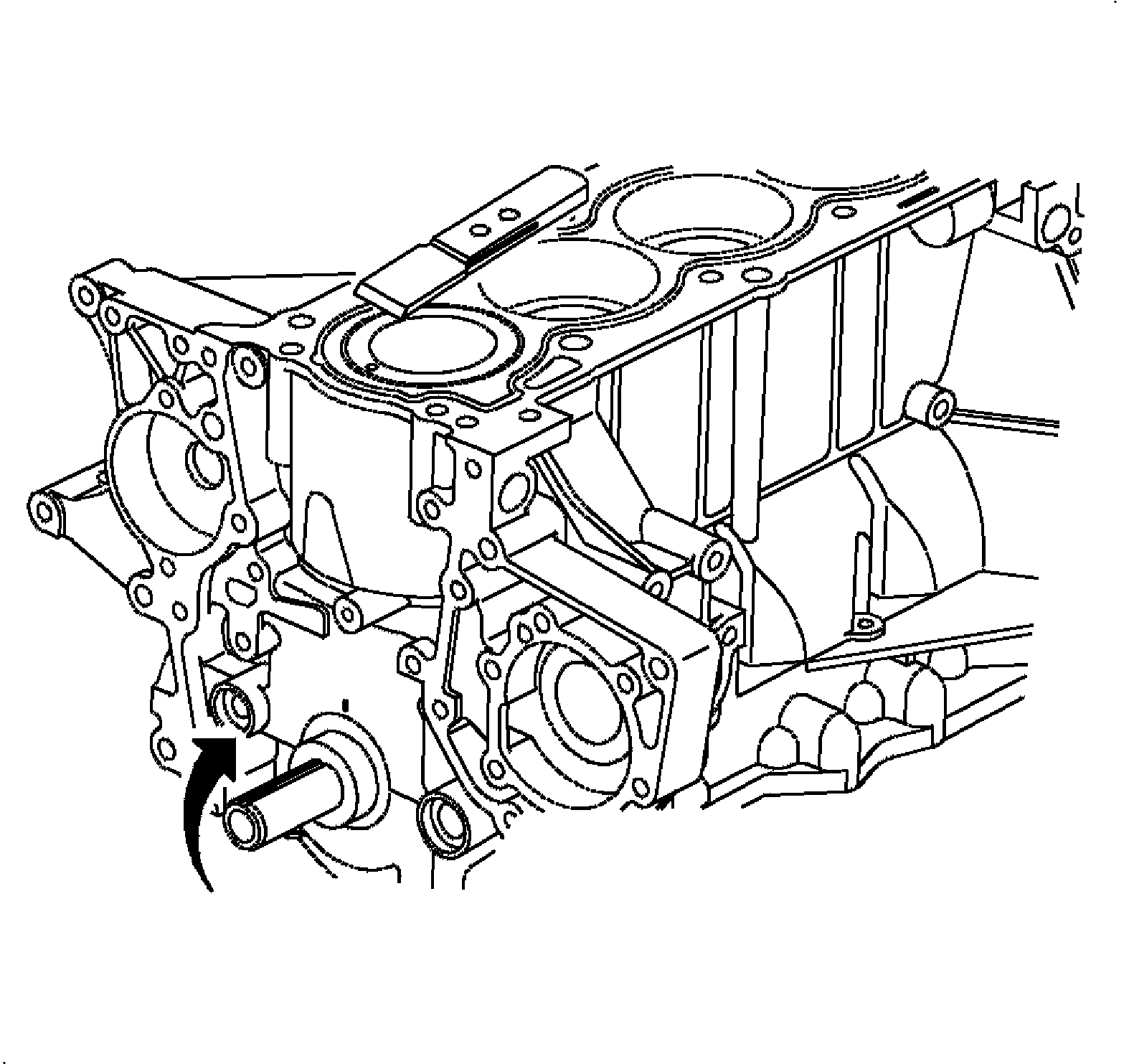
- Clean the top of the pistons and top of the block.
| | Important: Cover the front of the engine with a shop
towel to prevent debris from entering the oil gallery holes and pan.
|
| 1.1. | Turn the crankshaft and bring each piston to top dead center (TDC). Using a
gasket scraper, remove all of the carbon from the piston top. |
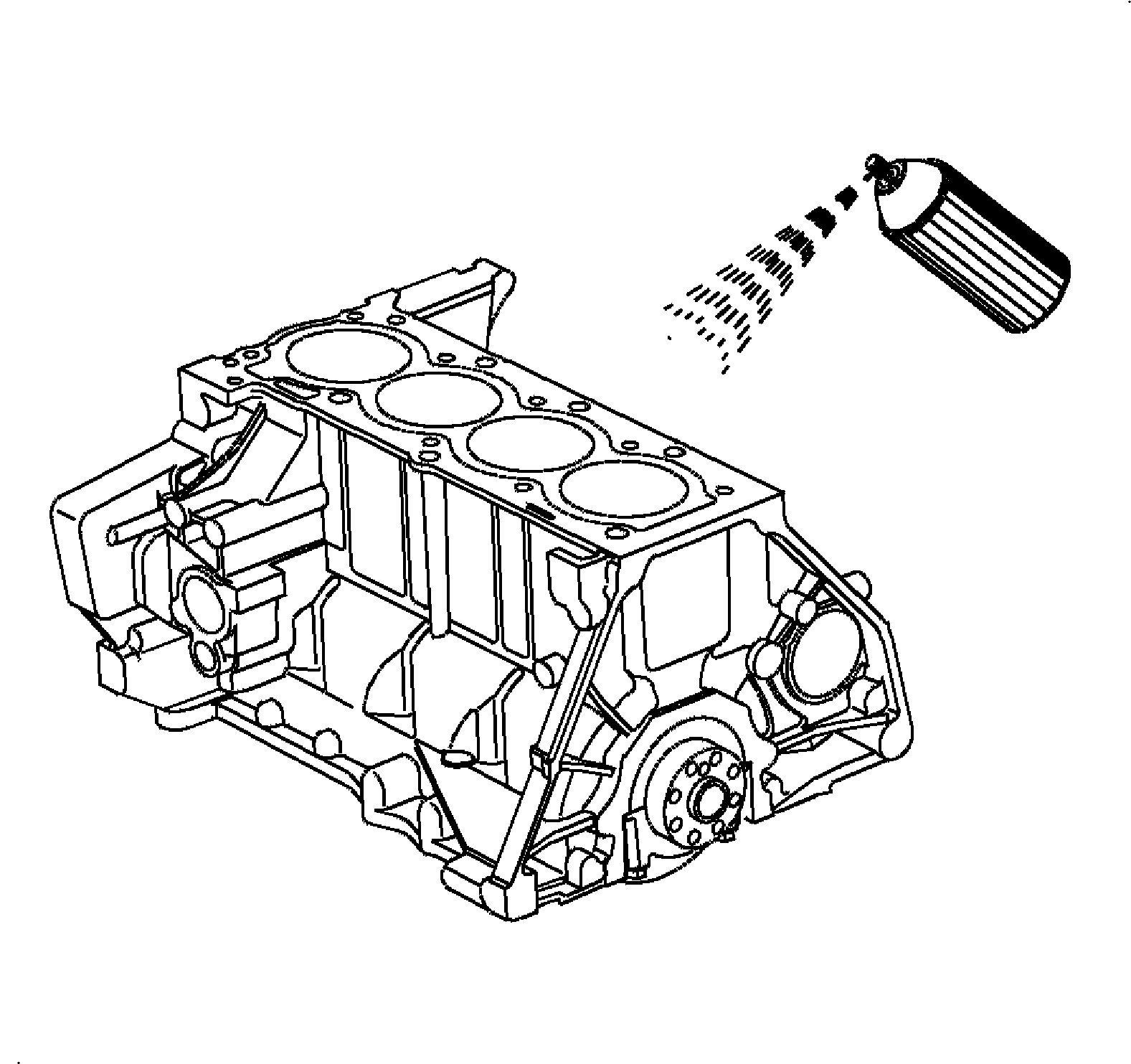
| | Caution: Protect yourself by wearing safety glasses, earplugs, a respirator, gloves,
and safety shoes while performing work on the vehicle.
|
| 1.2. | Remove all the gasket material from the top of the block using a plastic or
wood scraper. |
| 1.3. | Blow carbon and oil from the bolt holes. |
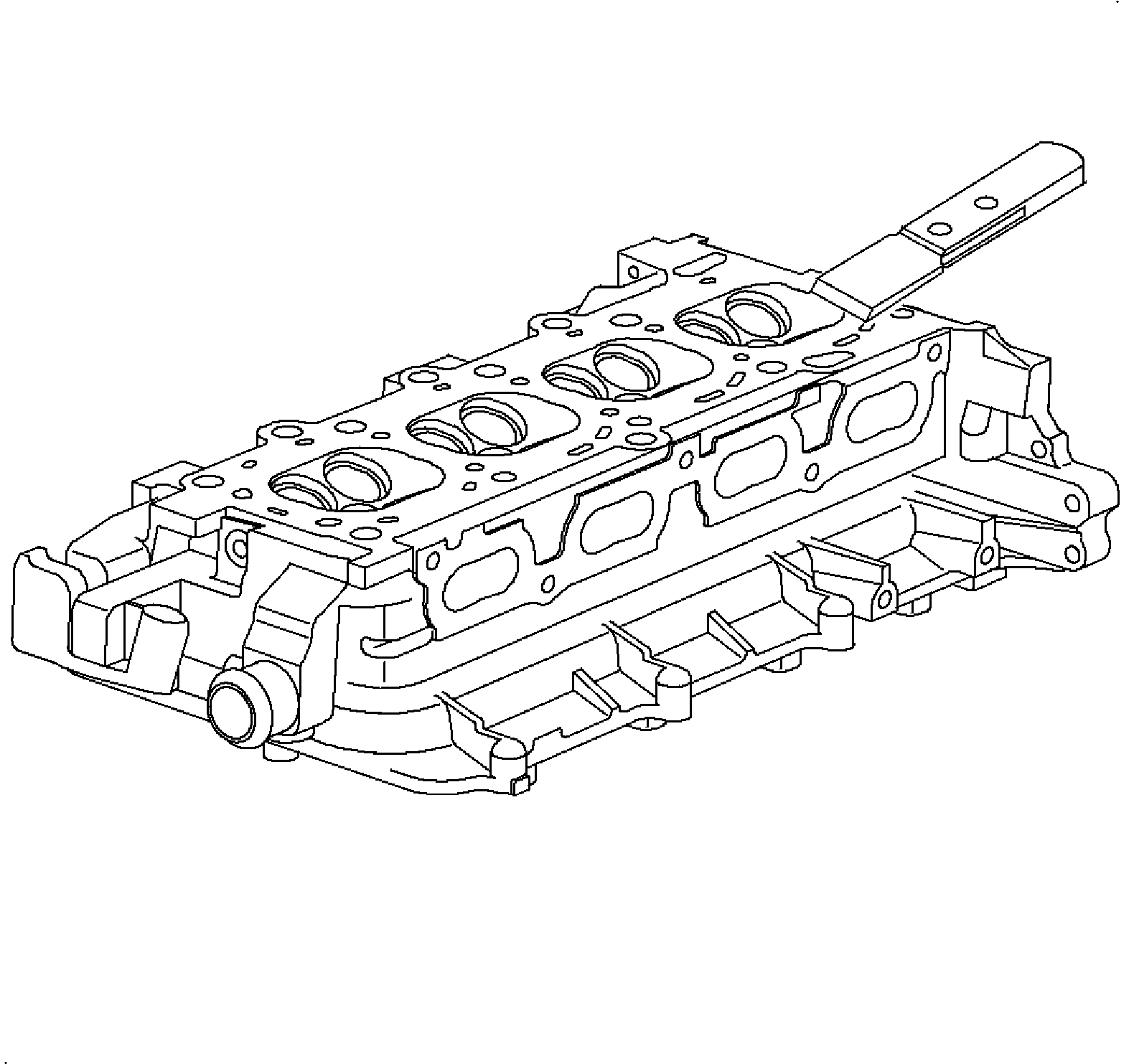
Notice: Be careful not to scratch or score the cylinder block and head aluminum surfaces
when cleaning.
- Remove the gasket material from the cylinder head.
Notice: Intake and exhaust manifold stud threads can be damaged during removal and must
be replaced when a new machined cylinder head casting is installed.
- Using a plastic or wood gasket scraper, remove all of the gasket material from
the manifold and head surface.
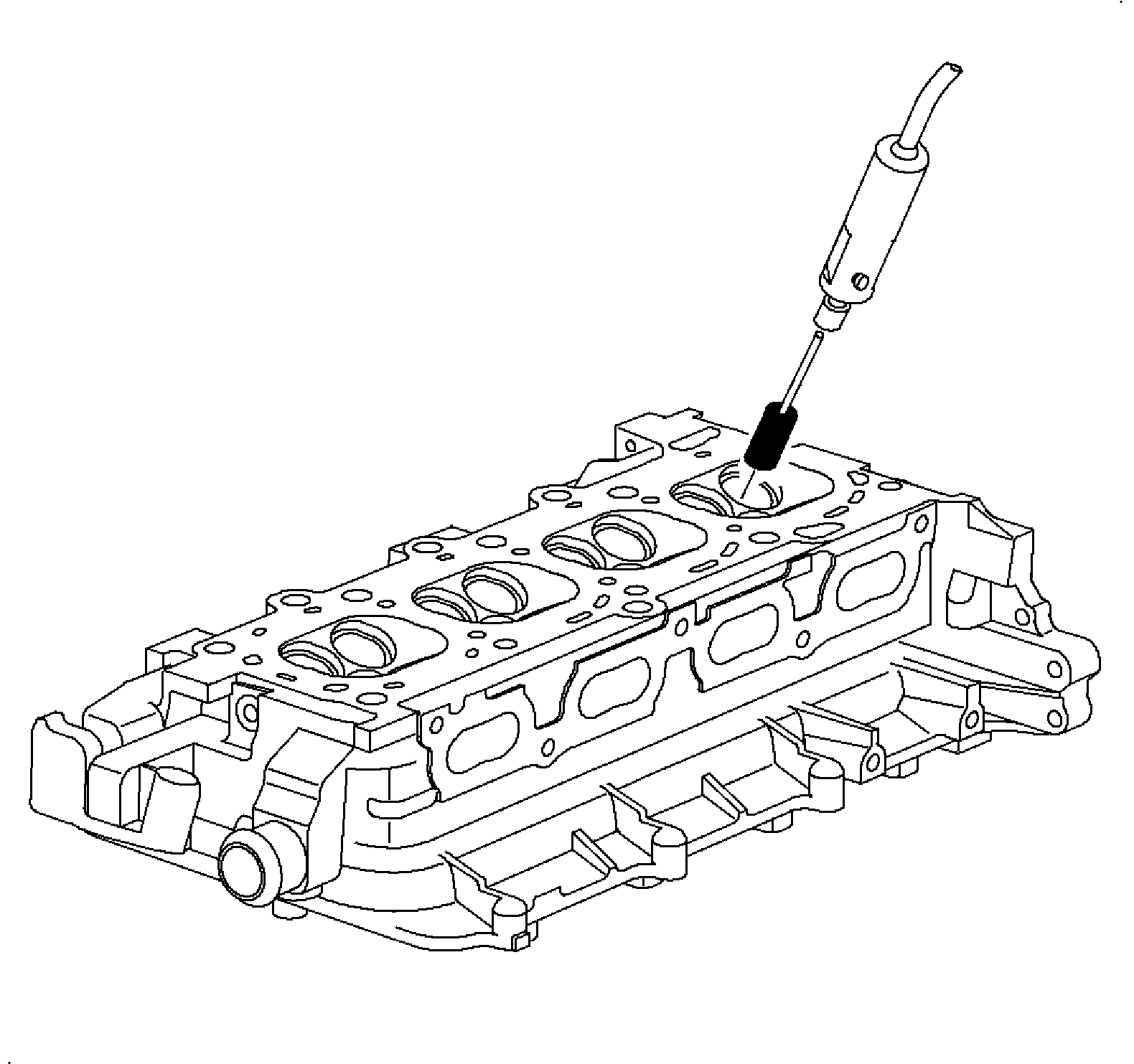
Notice: Be careful not to scratch the head gasket contact surface when cleaning the
cylinder head.
- Using a wire brush, remove all of the carbon from the combustion chambers.
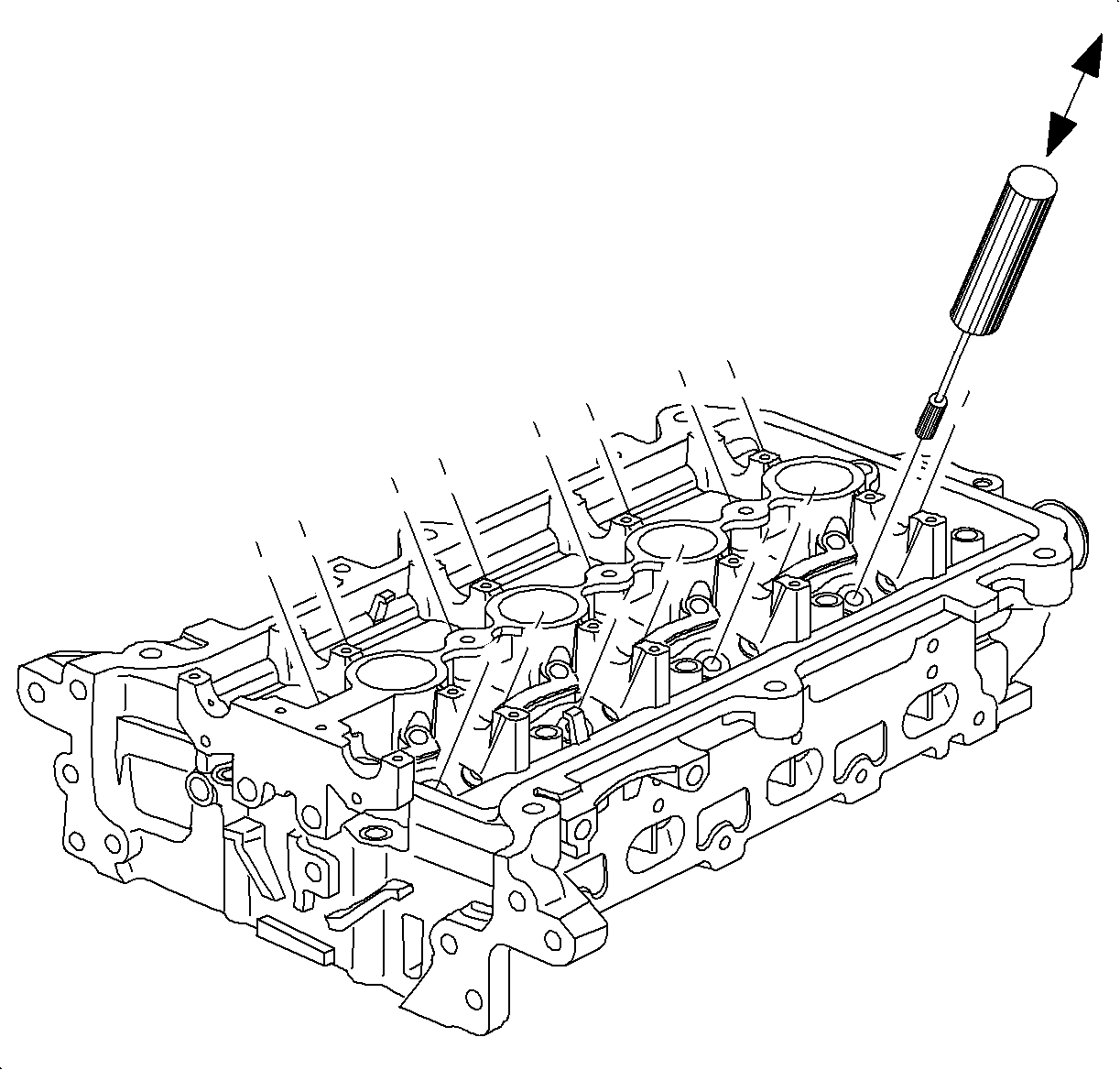
- Using a valve guide bushing brush and solvent, clean all of the valve guide
bushings.
- Using a soft brush and solvent, thoroughly clean the cylinder head:
| • | Intake and exhaust ports |
| • | Intake and exhaust valve seats and guides |
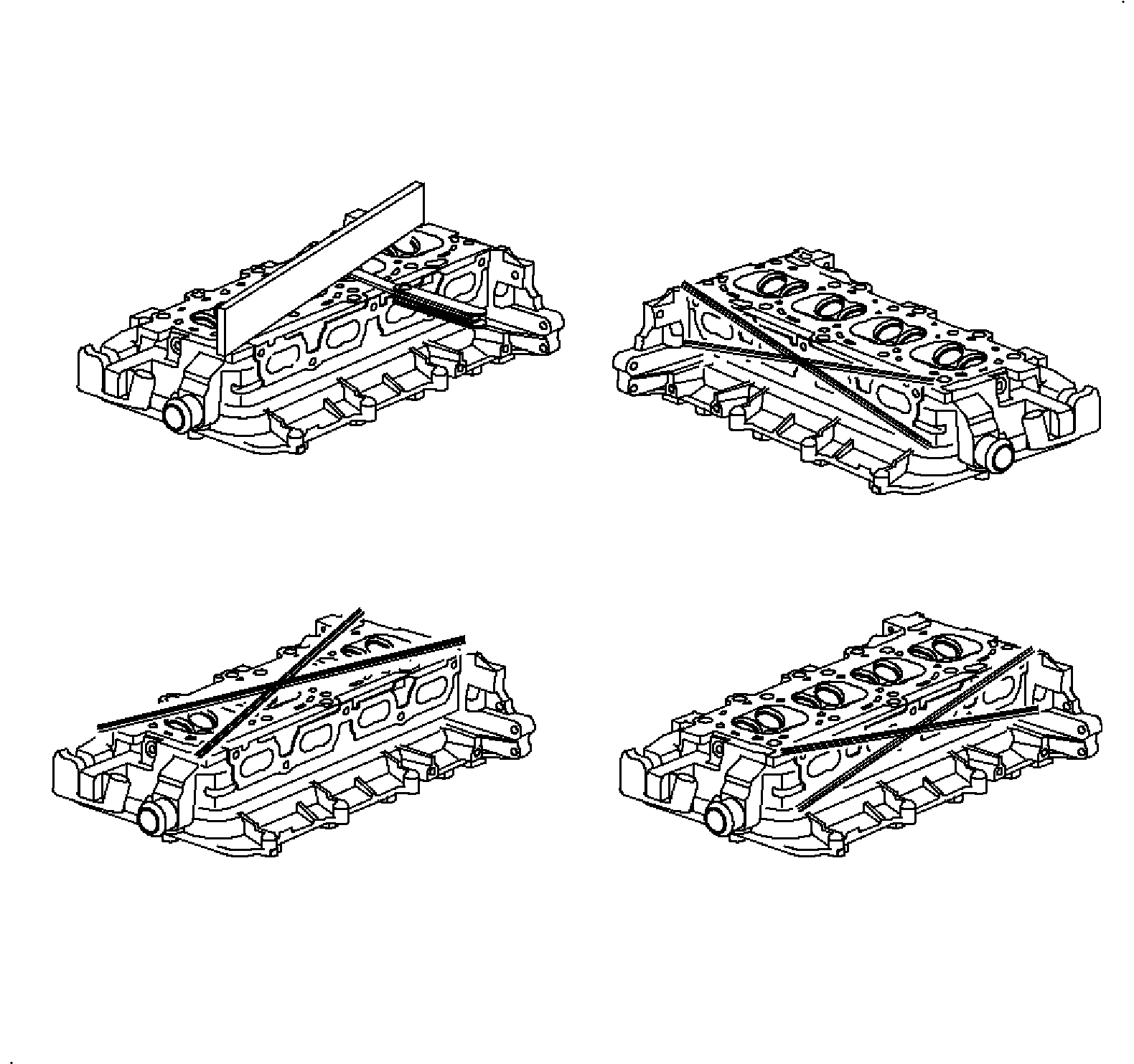
- Inspect the cylinder head for flatness. Using a SA9177NE
or equivalent and a SA91101NE
or equivalent, measure the surfaces contacting the cylinder block
and manifolds for warpage. If warpage is greater than maximum, replace the cylinder
head.
Specifications
Cylinder Block Side Maximum Warpage
| • | Standard Transverse: 0.03 mm (0.0012 in) |
| • | Service Limit Transverse: 0.05 mm (0.002 in) max. |
| • | Standard Longitudinal: 0.07 mm (0.0028 in) |
| • | Service Limit Longitudinal: 0.1 mm (0.004 in) max. |
Specifications
Intake Manifold Side Maximum Warpage
| • | Standard Longitudinal: 0.1 mm (0.004 in) |
| • | Service Limit Longitudinal: 0.15 mm (0.006 in) max. |
Specifications
Exhaust Manifold Side Maximum Warpage
| • | Standard Longitudinal: 0.1 mm (0.004 in) |
| • | Service Limit Longitudinal: 0.15 mm (0.006 in) max. |
Specifications
EGR Flange Maximum Warpage
| • | Standard: 0.1 mm (0.004 in) max. |
| • | Service Limit: 0.15 mm (0.006 in) max. |
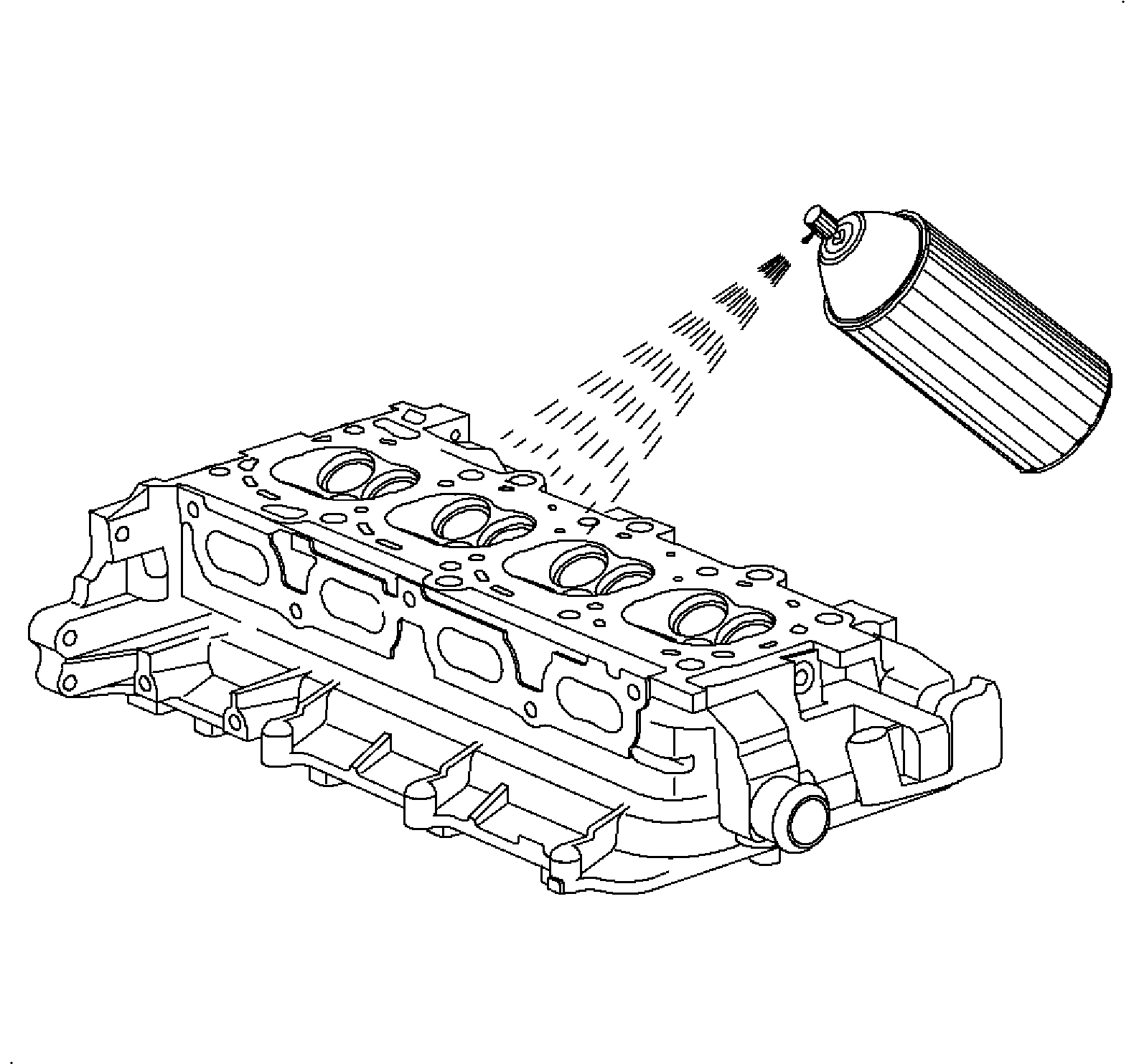
- Inspect the cylinder head for cracks. Using a dye penetrate, check the combustion
chamber intake and exhaust ports, the head surface, and the top of the hear, around
all bolt holes, for cracks. If cracked, replace the cylinder head.
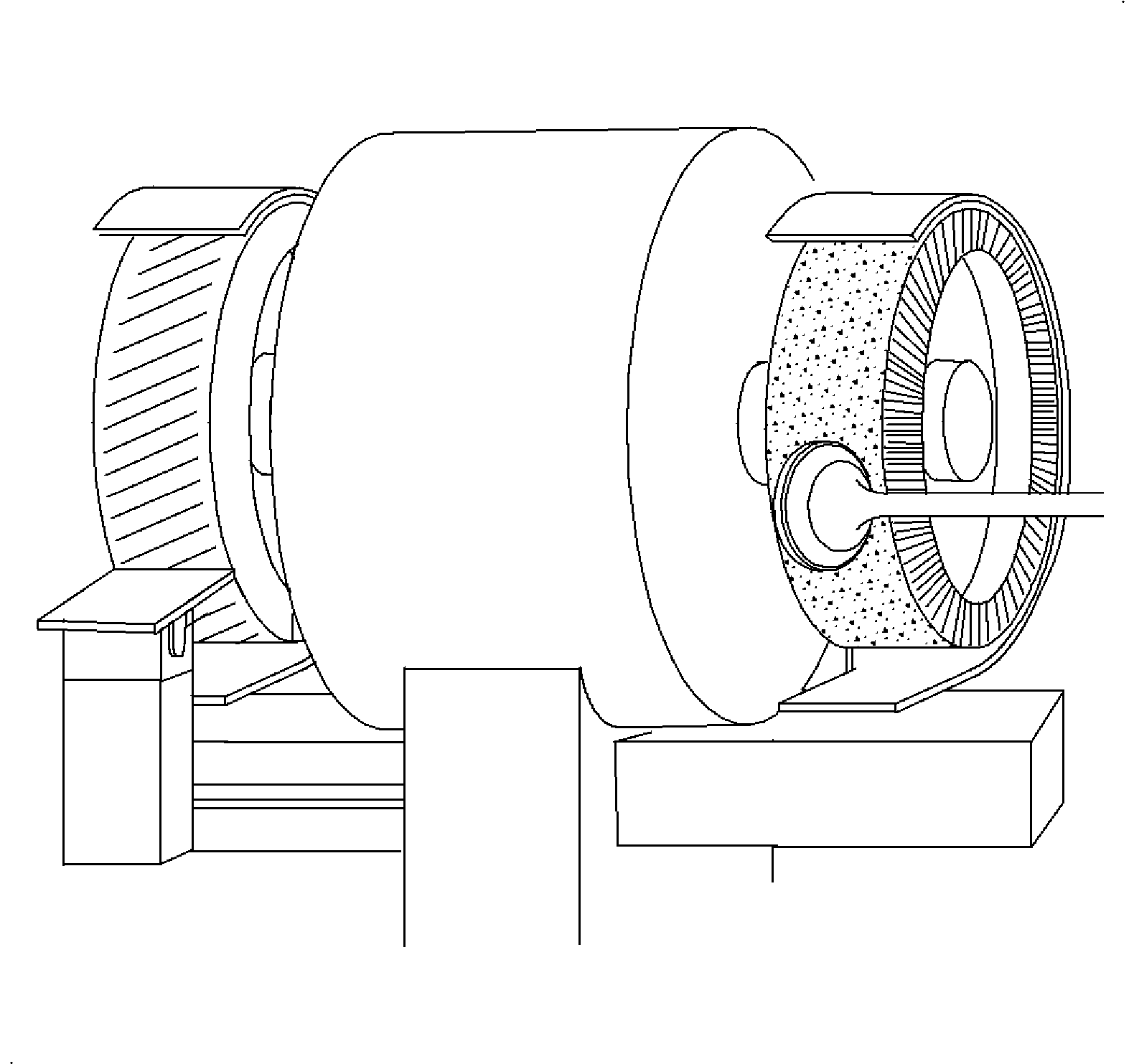
- Clean the valves.
Using a gasket scraper, or wire brush, remove any carbon from the valve
head.
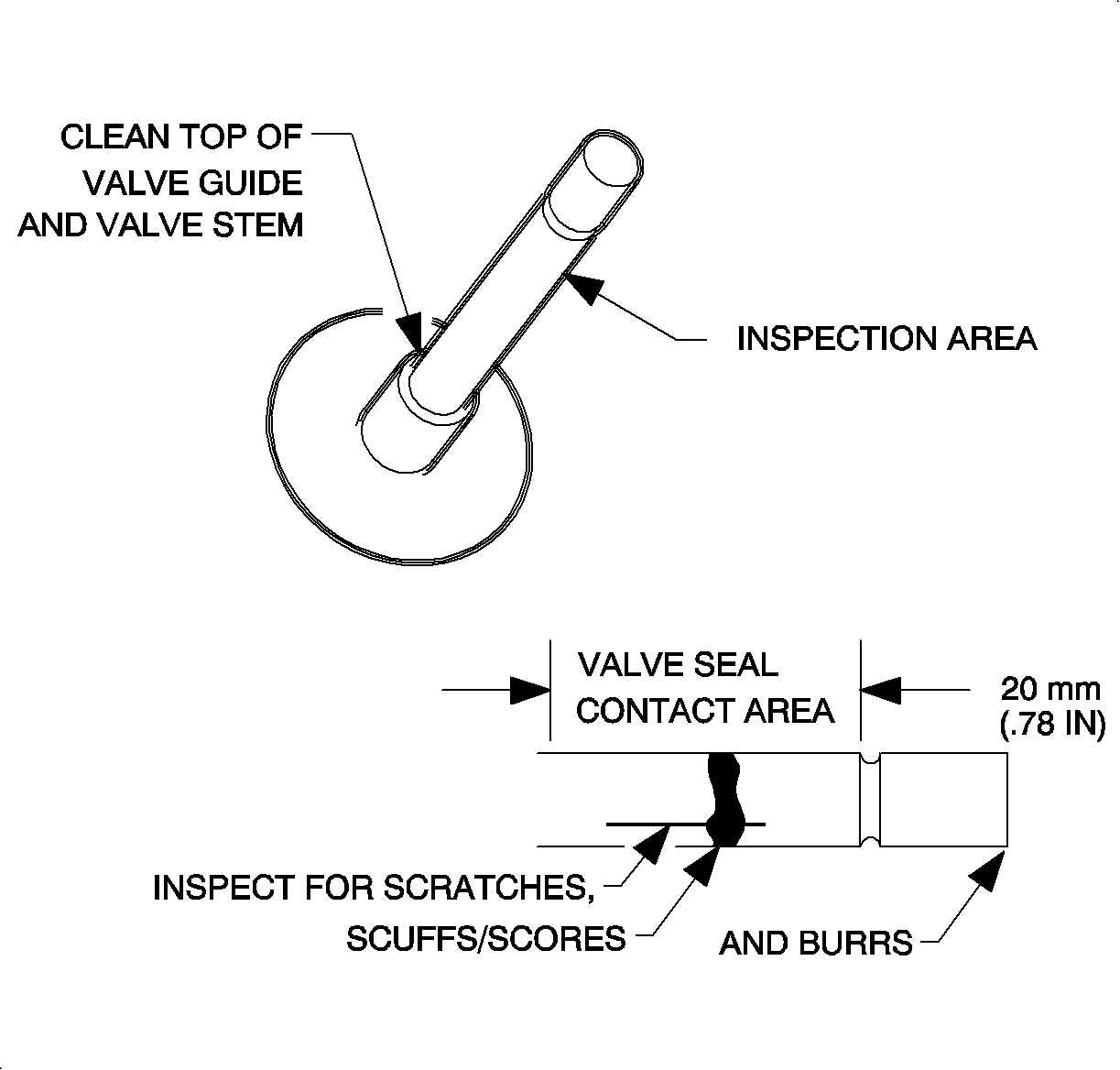
Important: A small scratch, score, or scuff on the valve
stem will damage and wear out the valve stem seal.
- Inspect the valve stems and guides for wear, scratches, and burrs.
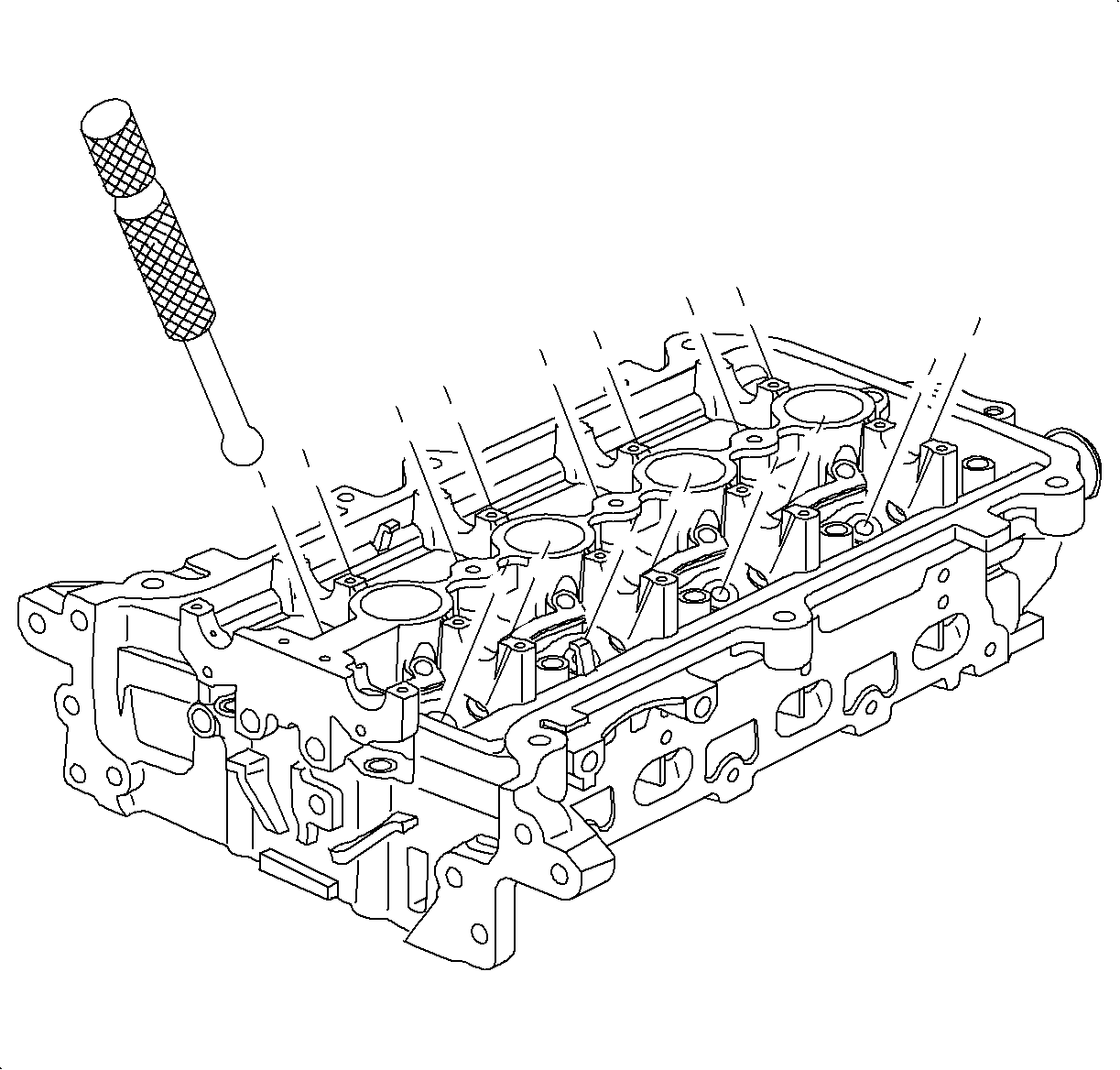
| 9.1. | The valve guide ID. can be inspected for proper size using the J 43481
. The valve guide ID. must be free of carbon
deposits. A wire brush and solvents can be used to remove carbon deposits. |
To calculate oil clearance between the valve stem and valve guide, measure
the guide bushing at 3 locations using a SA91102NE
or equivalent.
Specifications
Guide Bushing Inside Diameter
| • | Standard: 6-6.02 mm (0.2364-0.2372 in) |
| • | Service Limit: 6.06 mm (0.239 in) max. |
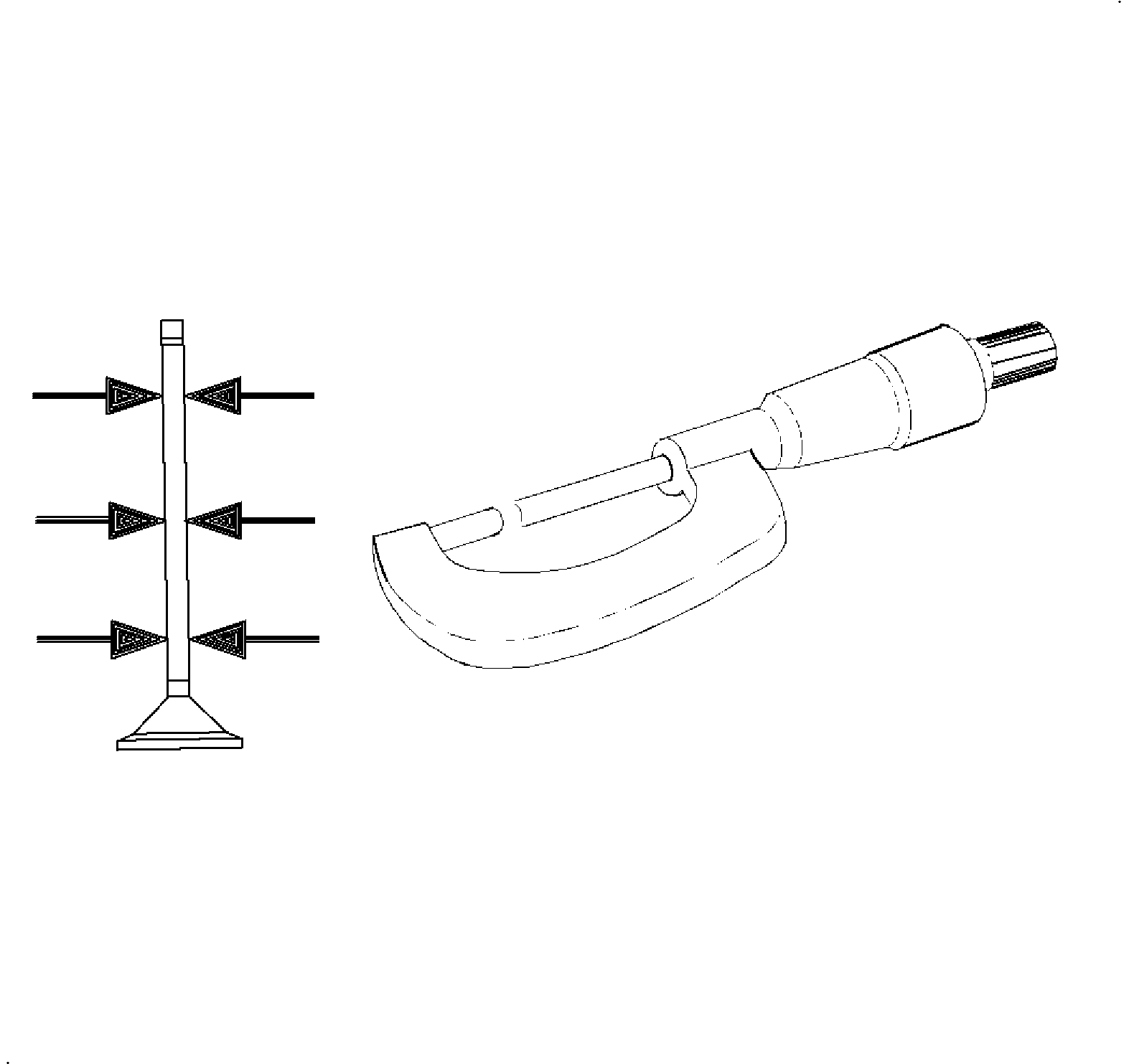
| 9.2. | Using a micrometer, measure the diameter of the valve stem. |
Specifications
Valve Stem Diameter
| • | Standard Intake: 5.958-5.997 mm (0.2347-0.2372 in) |
| • | Service Limit Intake: 5.945 mm (0.2342 in) max. |
| • | Standard Exhaust: 5.944-5.963 mm (0.2342-0.2349 in)
min. |
| • | Service Limit Exhaust: 5.93 mm (0.2336 in) min. |
| 9.3. | Subtract the valve stem diameter measurement from the valve guide bushing
inside diameter measurement. If the clearance is greater than maximum, replace the
valve and guide bushing. |
Specifications
Oil Clearance
| • | Standard Intake: 0.025-0.064 mm (0.001-0.0025 in) |
| • | Service Limit Intake: 0.115 mm (0.0044 in) max. |
| • | Standard Exhaust: 0.037-0.082 mm (0.0015-0.0032 in) |
| • | Service Limit Exhaust: 0.131 mm (0.005 in) max. |
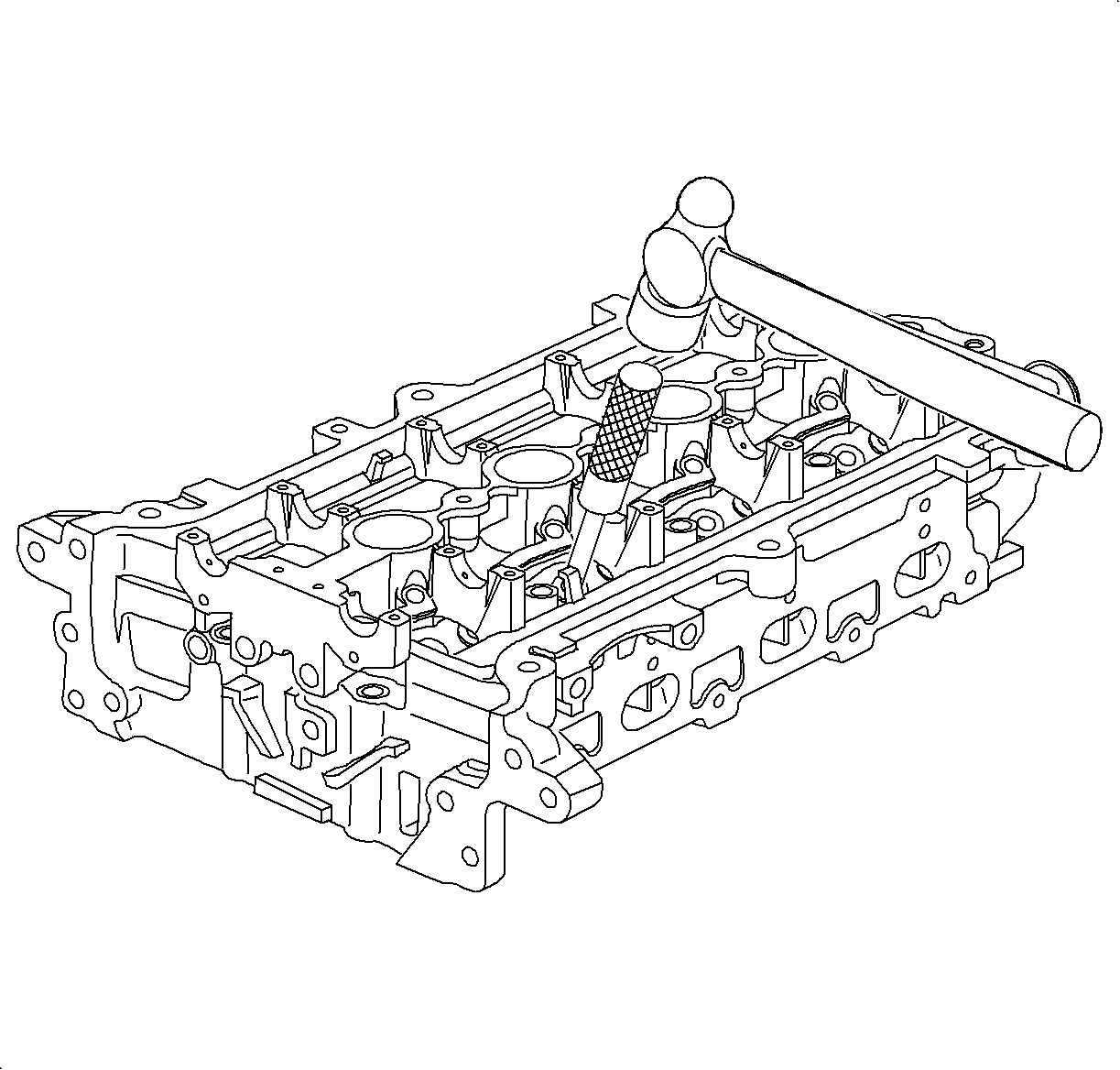
- If necessary, replace the valve guide bushings.
| 10.1. | Using the J 43225
and
a hammer, drive out the valve guide bushing. |
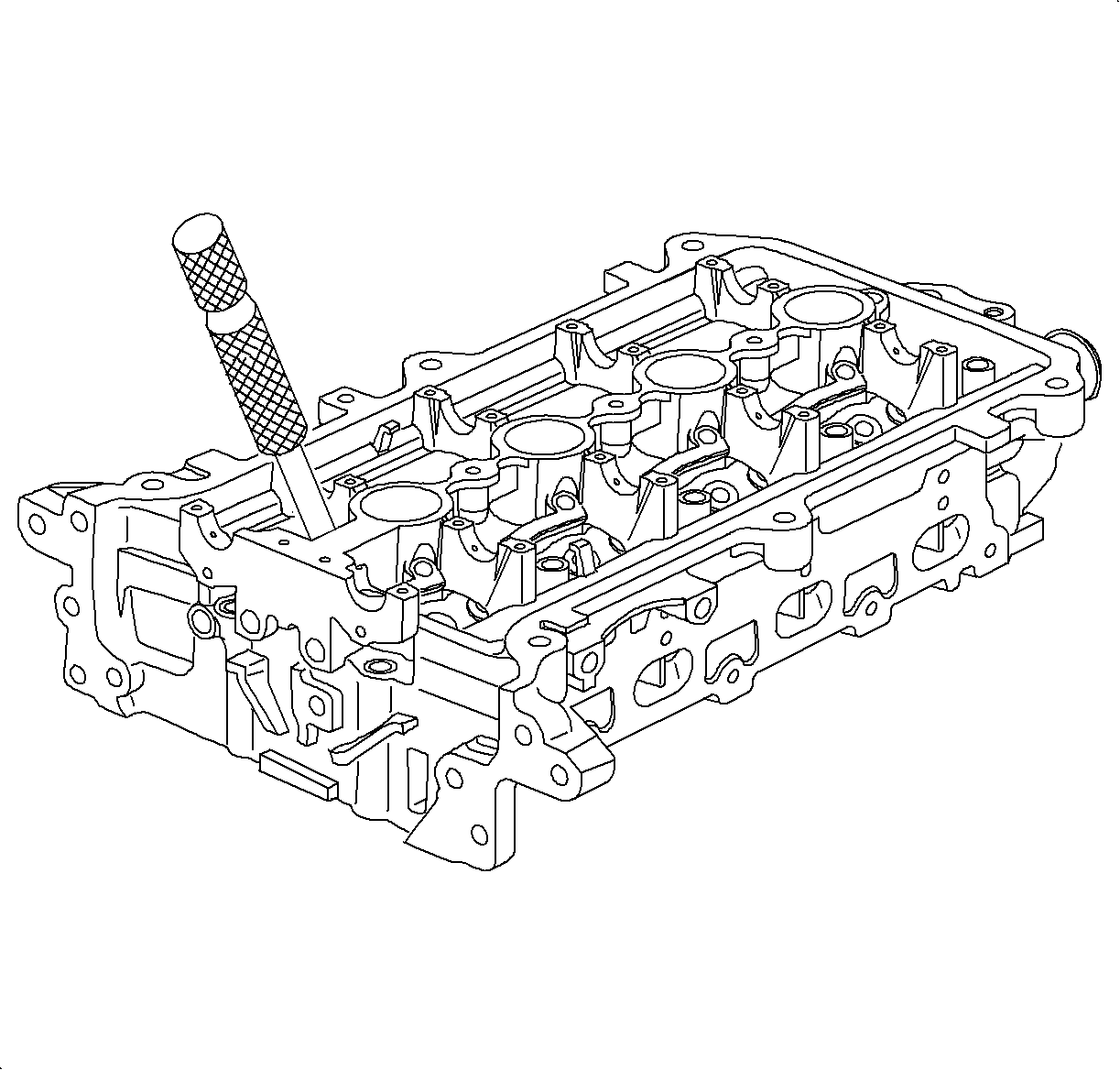
| 10.2. | Using a SA91102NE
or equivalent,
measure the bushing bore diameter in the cylinder head. If the bushing bore diameter
of the cylinder head is more than 11.368 mm (0.4475 in), use the SA9126E-5
and ream the bore to the following dimensions to
install an oversized bushing, 11.587-11.613 mm (0.456-0.457 in).
If the bushing bore diameter of the cylinder head exceeds 11.613 mm (0.457 in),
replace the cylinder head. |
Specifications
Cylinder Head Valve Guide Bore (Cold)
| • | Standard: 11.337-11.363 mm (0.446-0.447 in) |
| • | Service Limit: 11.368 mm (0.4475 in) max. |
| • | Oversize Bore: 11.587-11.613 mm (0.456-0.457 in) |
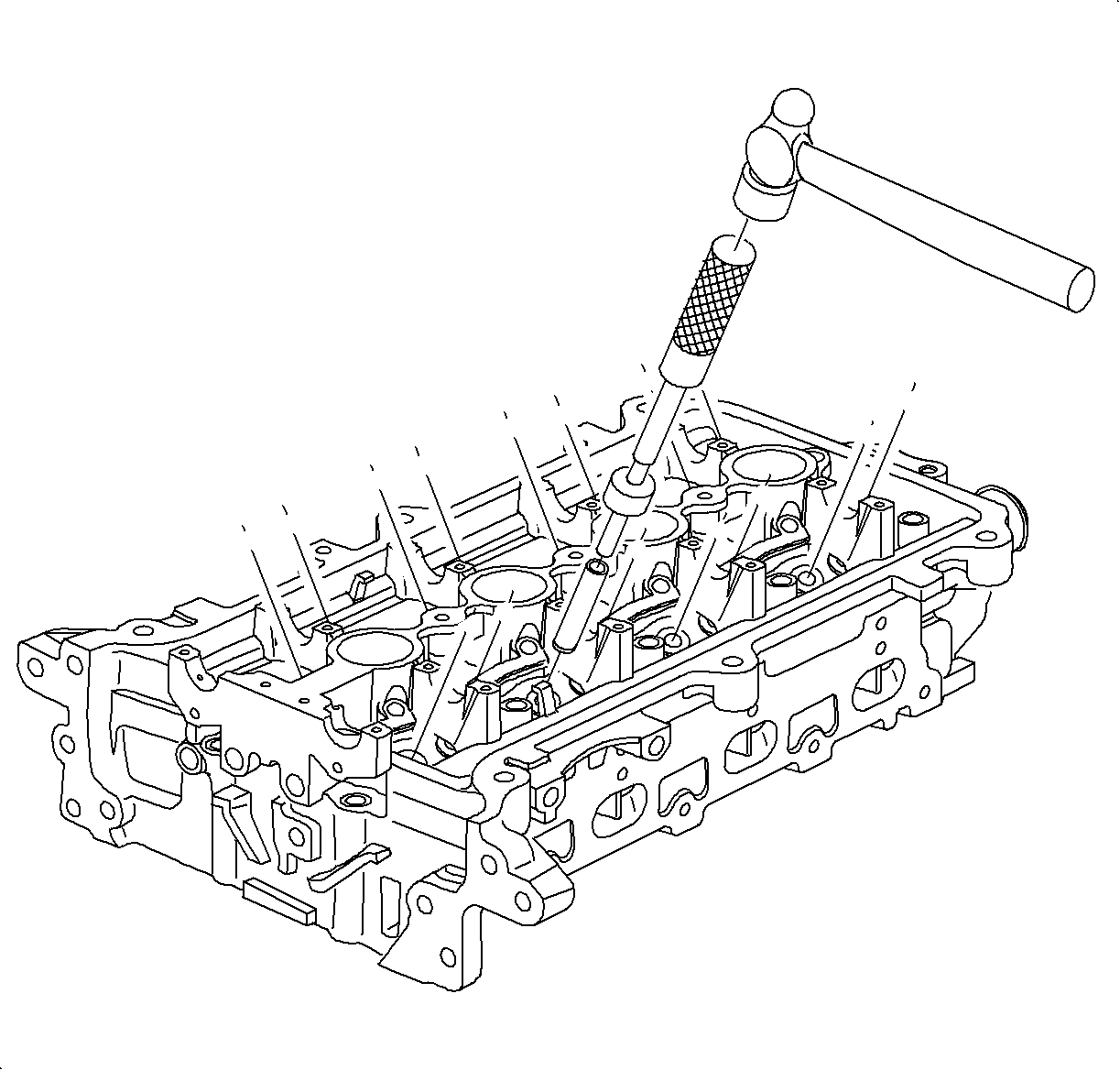
| | Important: Do not oil or use any thread locking materials
when installing valve guides.
|
| 10.3. | Using the J43225-3
and a hammer, drive in
a new valve guide bushing. |
Specifications
Spring Seat Guide Height Above Cylinder Head
Valve: 8.3-8.55 mm (0.327-0.3369 in)
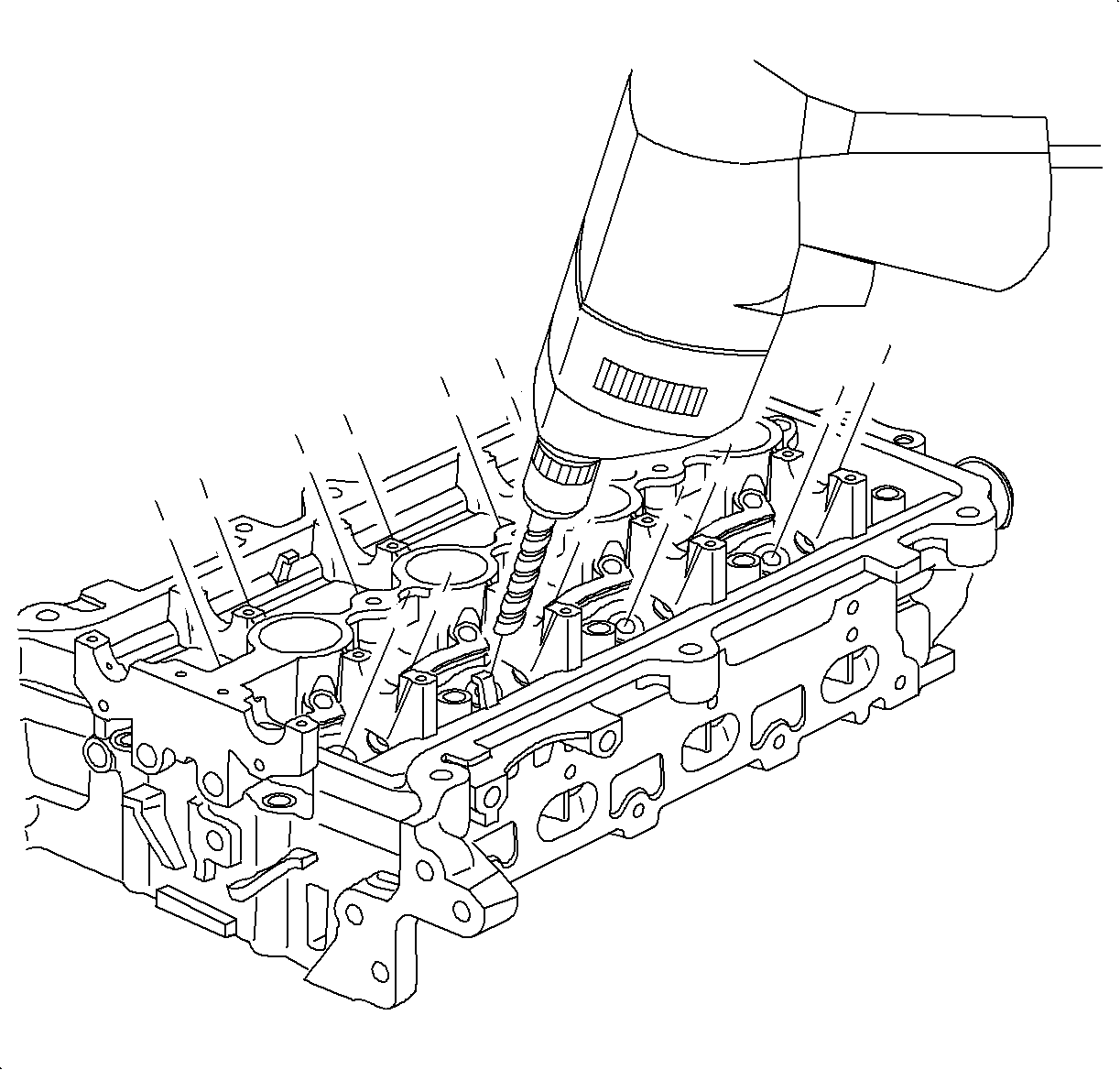
| | Important: Do not use the 1991-1998 model year
reamer. This reamer is 7 mm in diameter. The 1999 DOHC valve guide
is 6 mm in diameter. Use the correct reamer for 1999 DOHC engine, SA9126E-10
.
|
| | Important: Oil the reamer with SAE 5W-30 SG
engine or cutting oil. Slowly drive the small reamer through the valve guide bore
with a 1/2 HP drill motor set at 500 RPM. Check the valve guide bore
to valve stem clearance.
|
| | Important: Make sure the reamer flutes are clean prior
to reaming each guide.
|
| 10.4. | Using a sharp SA9126E-10
,
ream the valve guide bushing to obtain the specified clearance between the valve
guide bushing and the new valve stem. |
Specifications
Clearance
| • | Standard Intake: 0.025-0.064 mm (0.00100.0025 in) |
| • | Service Limit Intake: 0.115 mm (0.0044 in) max. |
| • | Standard Exhaust: 0.037-0.082 mm (0.0015-0.0032 in) |
| • | Service Limit Exhaust: 0.131 mm (0.005 in) max. |
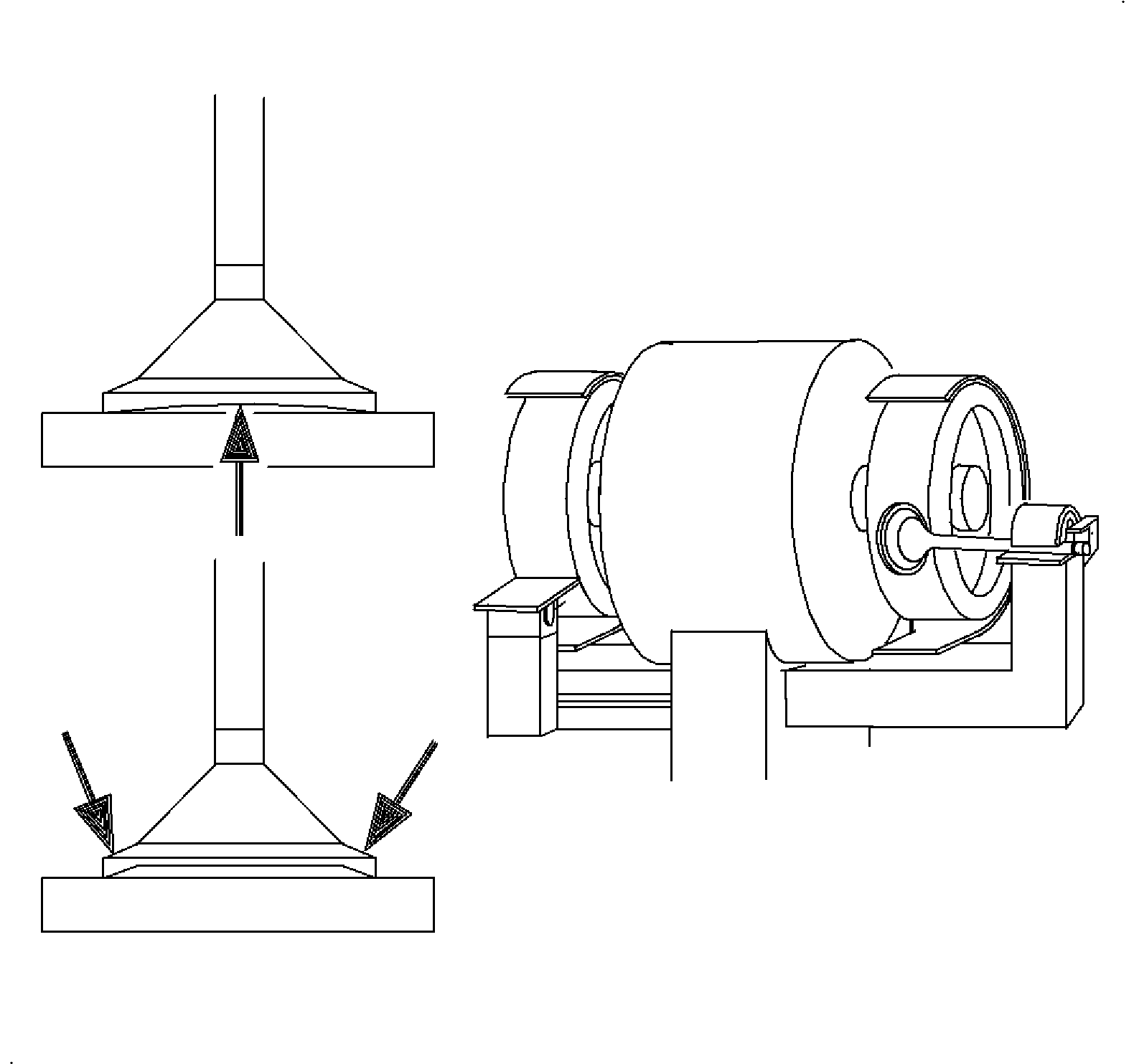
Important: If the valve head is cupped, it must be replaced.
- Inspect and grind the valves.
| 11.1. | Grind the valve only enough to remove pits and carbon. |
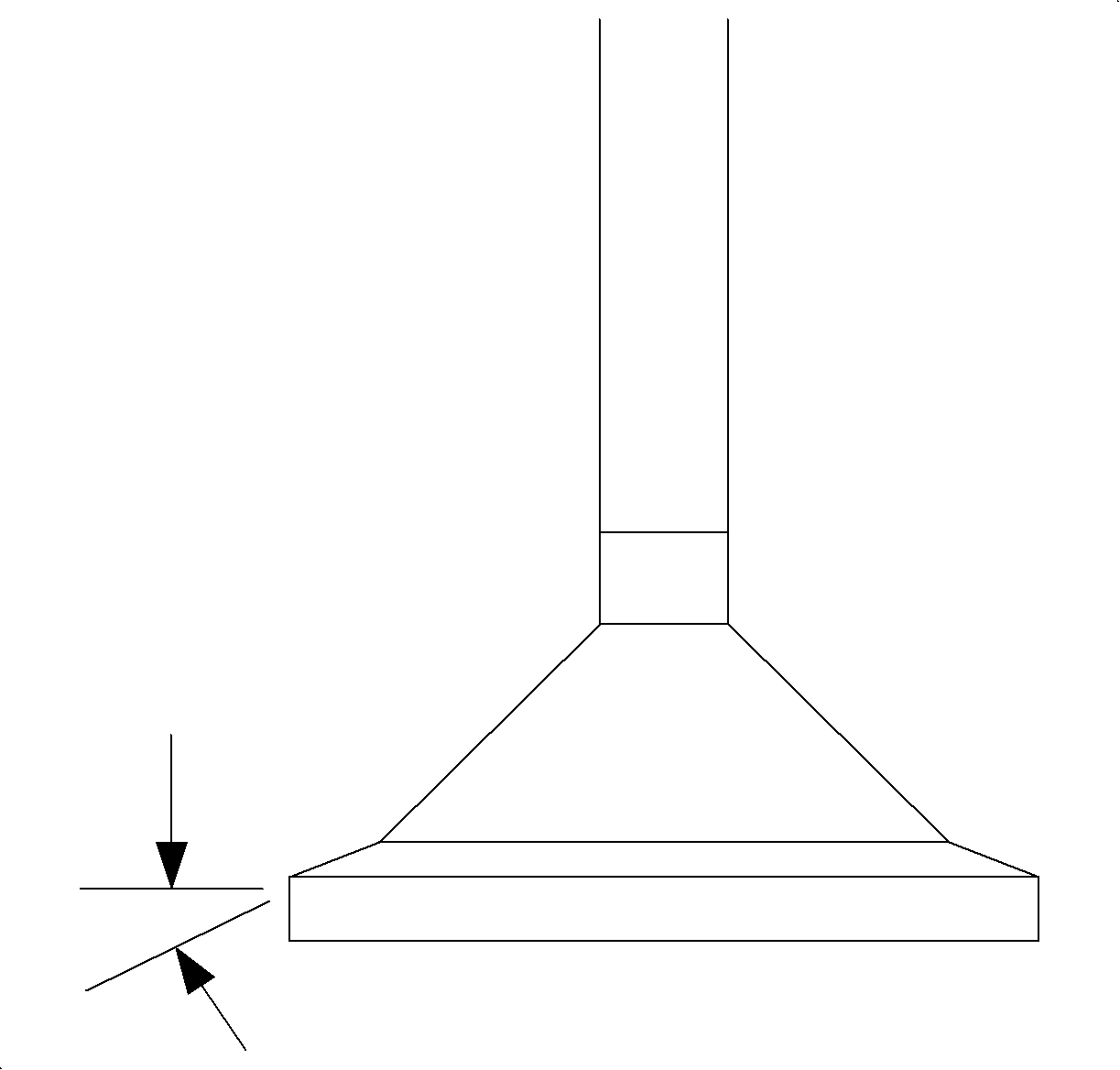
| 11.2. | Check that the
valve is ground to the correct valve face angle. |
Specifications
Standard Intake and Exhaust Valve Face Angle:
44.5-45 degrees
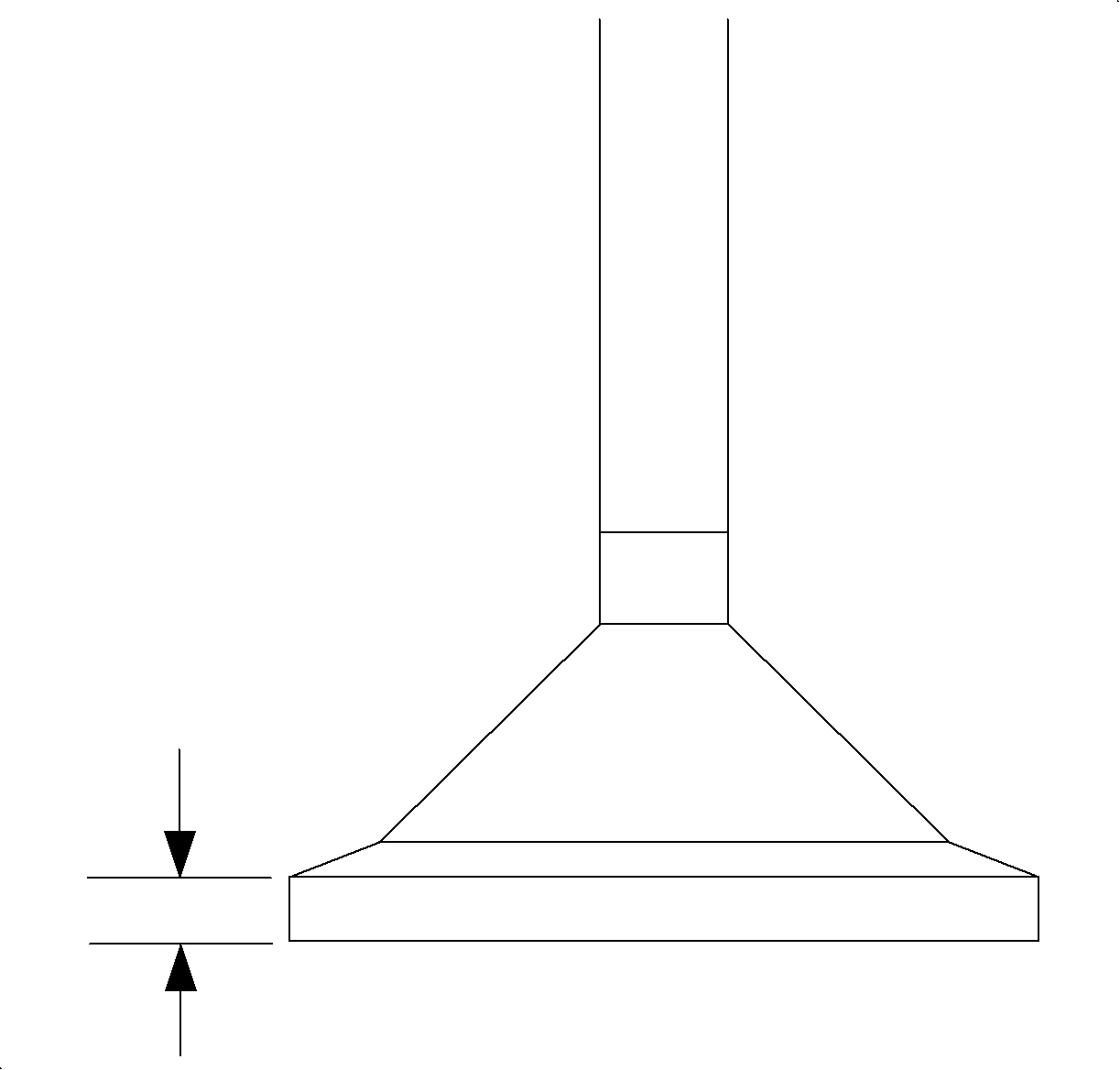
| 11.3. | Check the valve
head margin thickness. If the valve head margin thickness is less than minimum, replace
the valve. |
Specifications
Margin Thickness
| • | Service Limit Intake: 0.75 mm (0.0295 in) min. |
| • | Service Limit Exhaust: 0.75 mm (0.0295 in) min. |
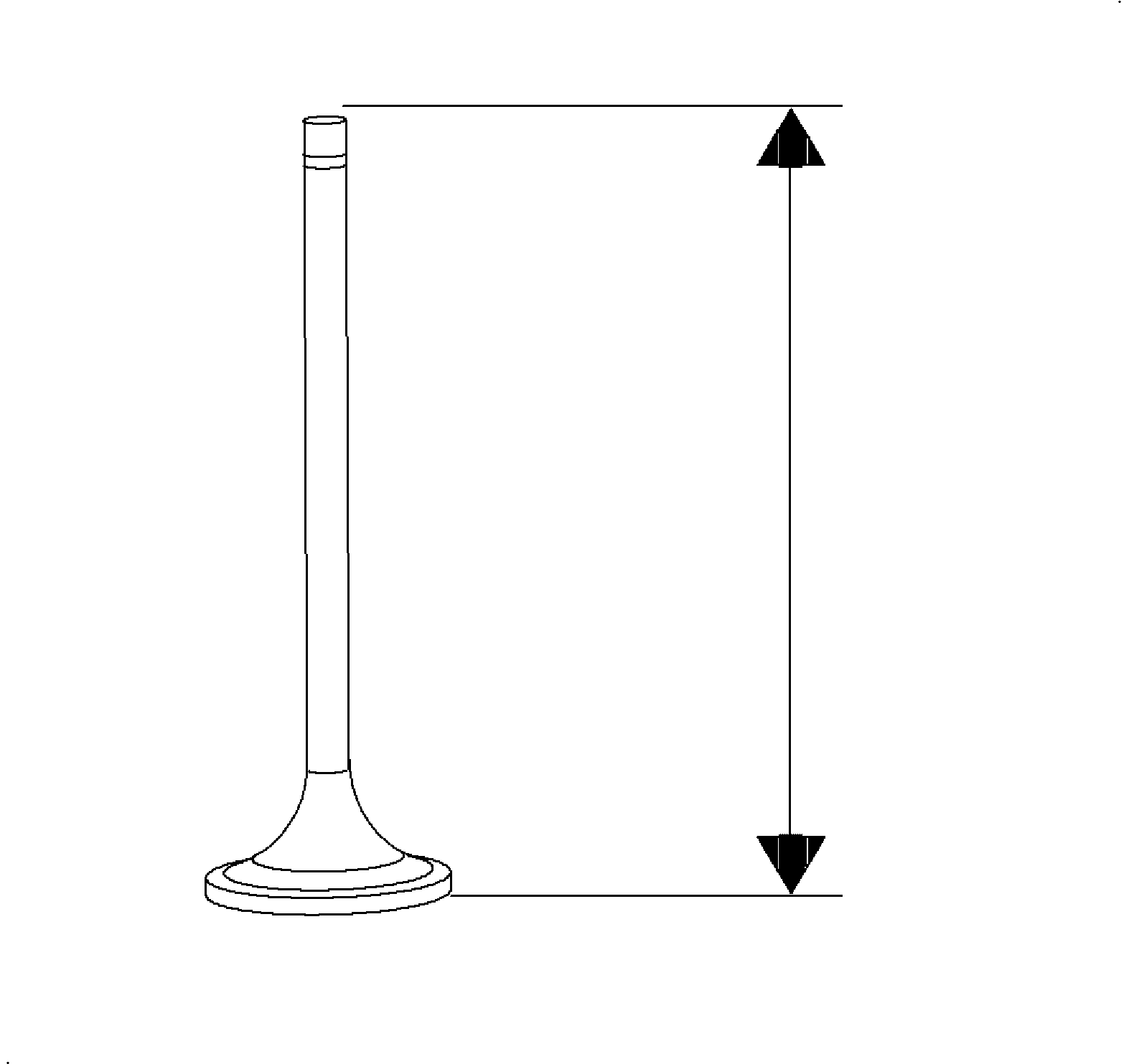
| 11.4. | Check the valve overall length. If the valve overall length is less than minimum,
replace the valve. |
Specifications
Minimum Overall Length
| • | Standard Intake: 96.28-96.74 mm (3.7934-3.8116 in) |
| • | Service Limit Intake: 96.2-96.74 mm (3.787-3.812 in) |
| • | Standard Exhaust: 95.58-96.04 mm (3.7659-3.784 in) |
| • | Service Limit Exhaust: 95.5-96.04 mm (3.76-3.784 in) |
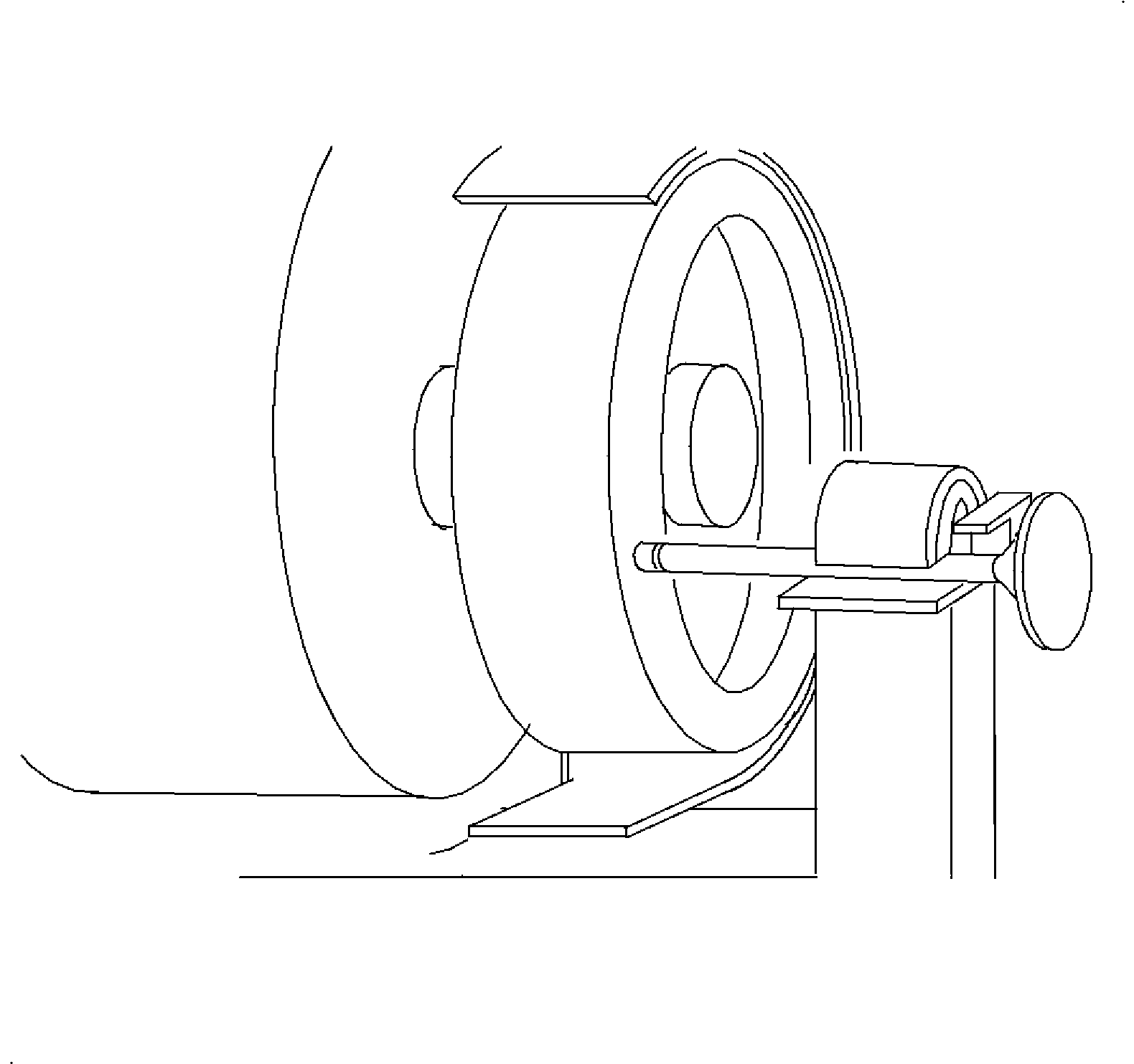
| | Important: Do not grind off more than the minimum overall
length.
|
| 11.5. | Check the surface of the valve stem tip for damage. If the valve stem tip is
damaged, grind the valve stem tip with a grinder until flat. Replace the valve if
necessary. |
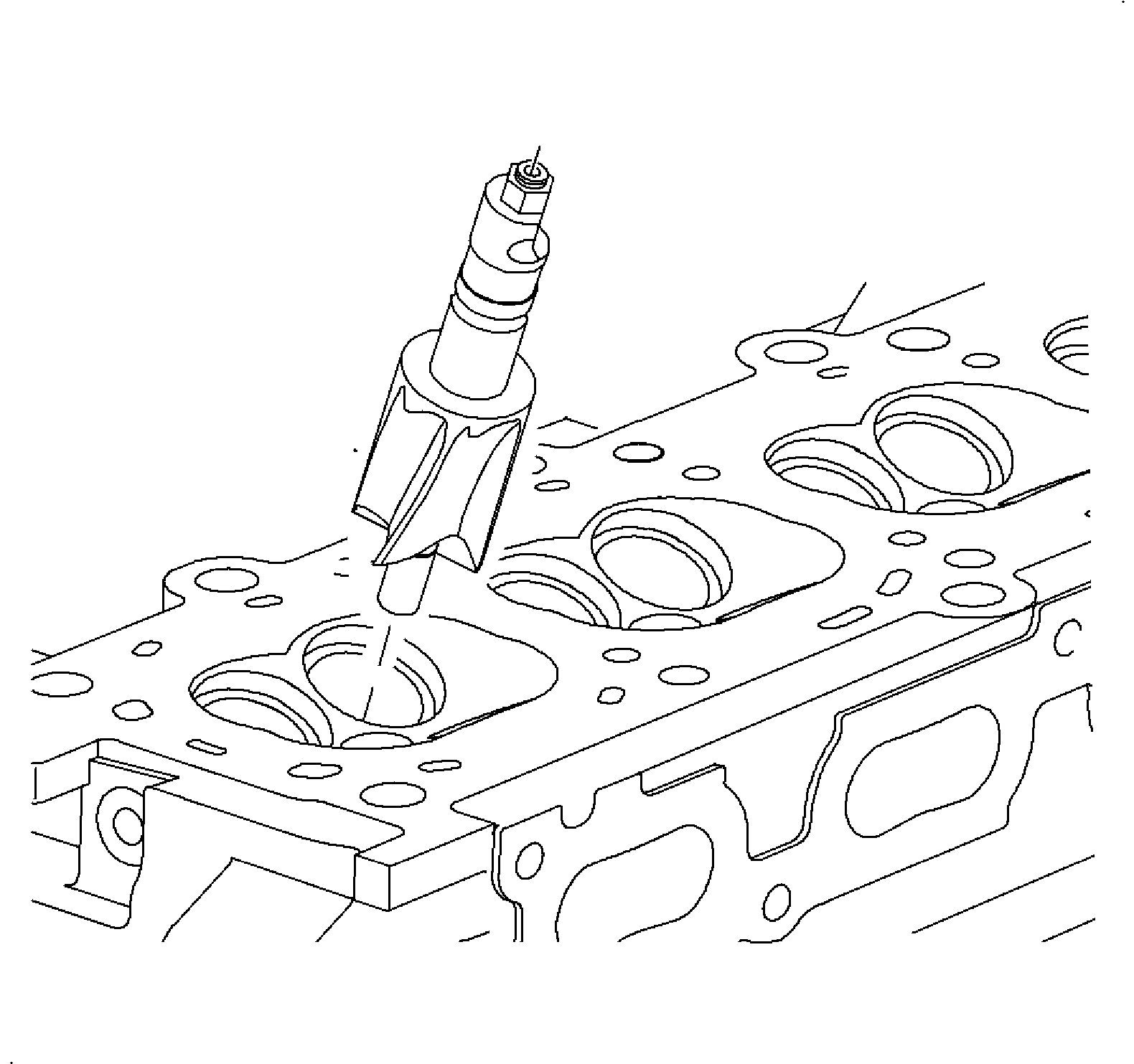
Important: Valve seats re released for service and can
be replaced. Damaged seats are usually replaced by a machine shop.
- Inspect and clean the valve seats.
Specifications
Cylinder Head Dimensions
| • | Standard Intake Valve Seat Bore: 33.399-33.423 mm (1.315-1.316 in) |
| • | Standard Exhaust Valve Seat Bore: 28.399-28.423 mm (1.118-1.119 in) |
Specifications
Valve Seat Outside Diameter
| • | Standard Intake: 33.49-33.51 mm (1.318-1.319 in) |
| • | Standard Exhaust: 28.49-28.51 mm (1.121-1.122 in) |
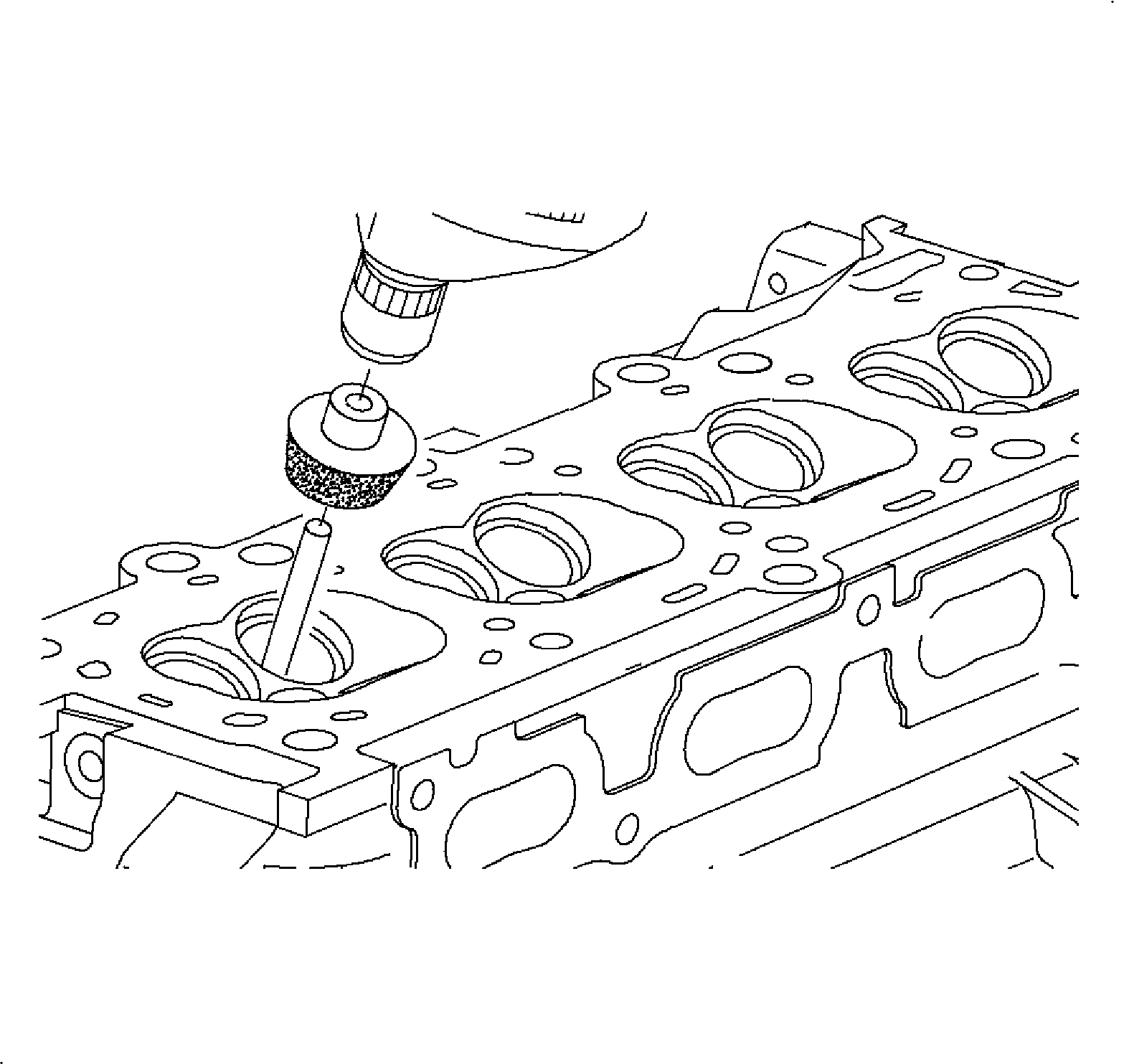
| 12.1. | Using a 44.5-45 degree carbide cutter or stone, resurface the
valve seats. Remove only enough metal to clean the seats. Check the valve seat width. |
Specifications
Valve Seat Width
| • | Standard Intake: 0.79-1.23 mm (0.031-0.048 in) |
| • | Service Limit Intake: 1.66 mm (0.0653 in) max. |
| • | Standard Exhaust: 1.05-1.49 mm (0.041-0.058 in) |
| • | Service Limit Exhaust: 1.92 mm (0.0756 in) max. |
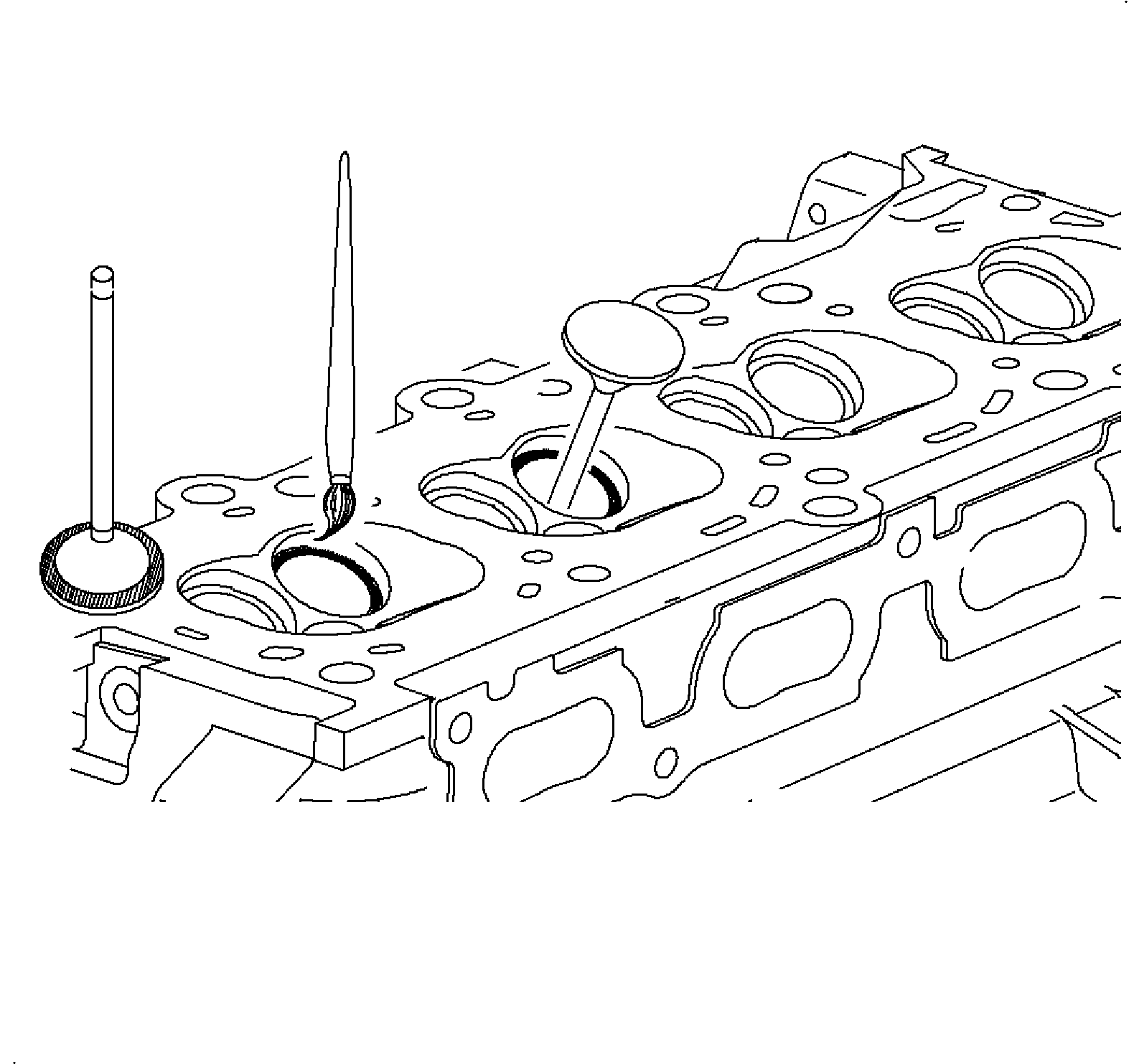
| 12.2. | Check the valve seating position. Apply a thin coat of Prussian blue, or white
lead, to the valve face. Install the valve. While applying light pressure to the
valve, rotate the valve against the seat. |
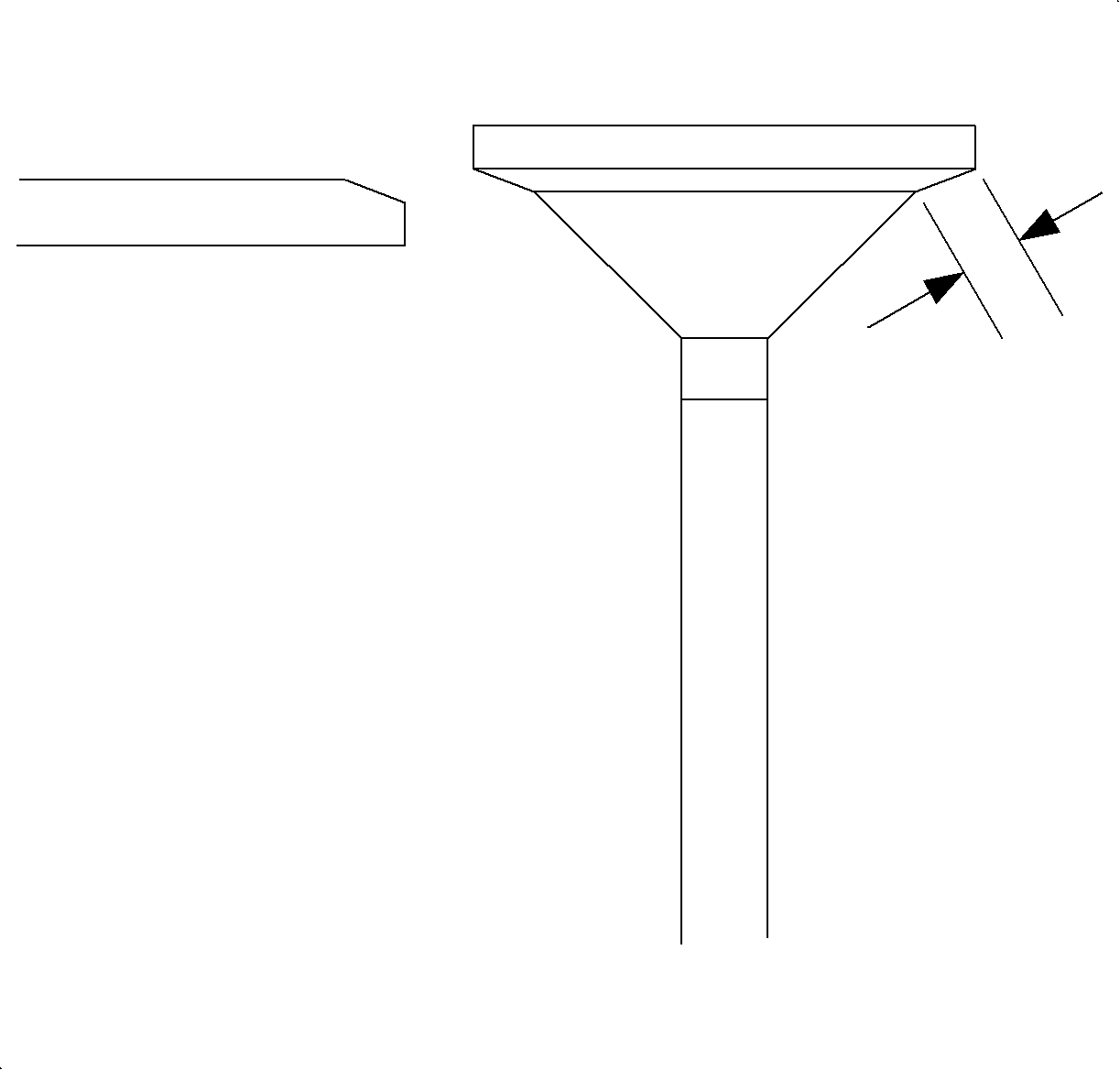
| 12.3. | Check the valve
face and seat for the following: |
| • | If blue appears 360 degrees around the face, the valve is concentric.
If not, replace the valve. |
| • | If blue appears 360 degrees around the valve seat, the guide and
seat are concentric. If not, resurface the seat. |
| • | Check that the seat contact is on the middle of the valve face. If not,
correct the valve seat as follows: |
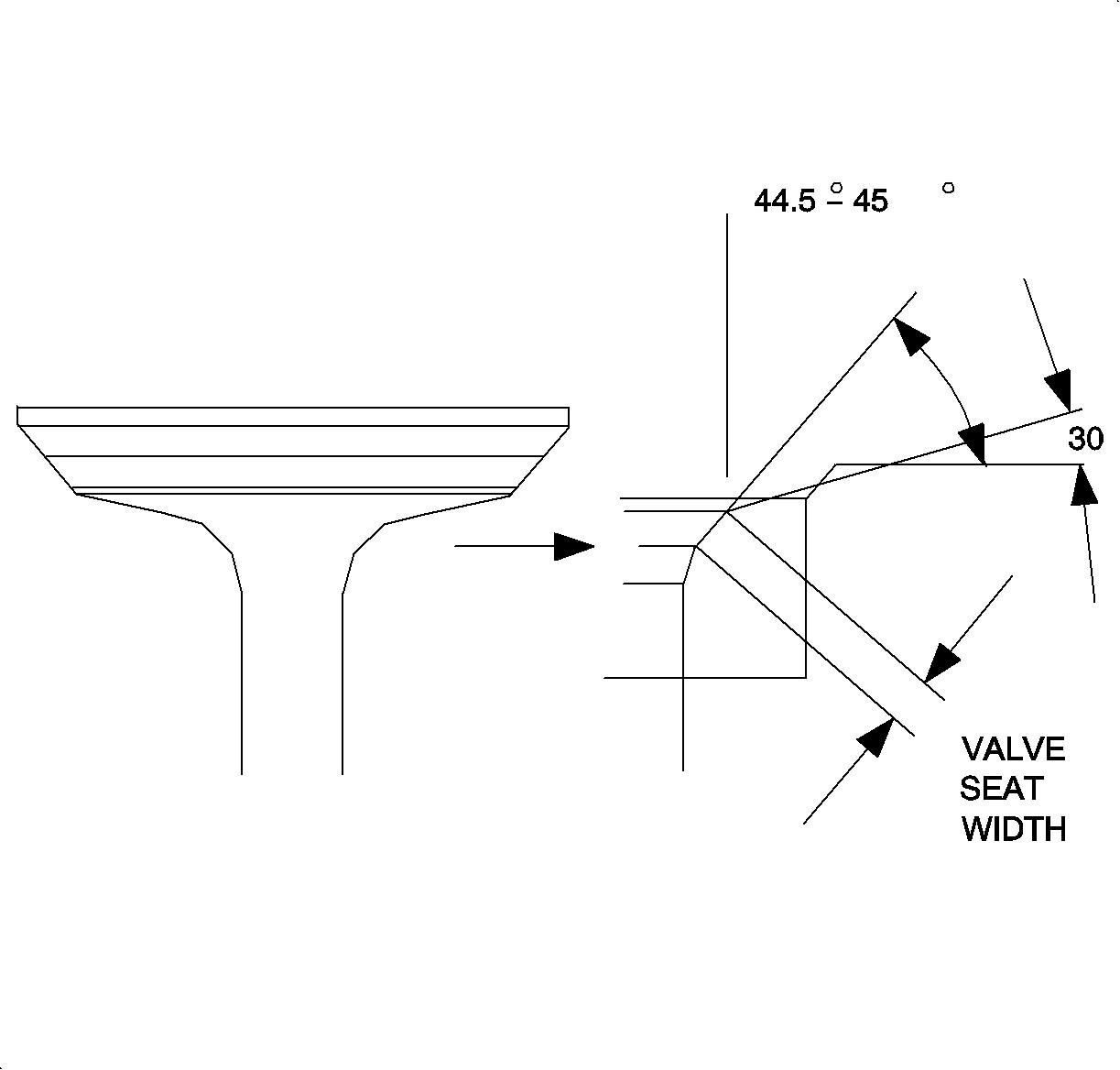
| - | If the seating is too high on the valve face, use 30 degree and 45 degree
cutters or stones to correct the seat width. |

| - | If the seating
is too low on the valve face, use 60 degree and 45 degree cutters or
stones to correct the seat. |
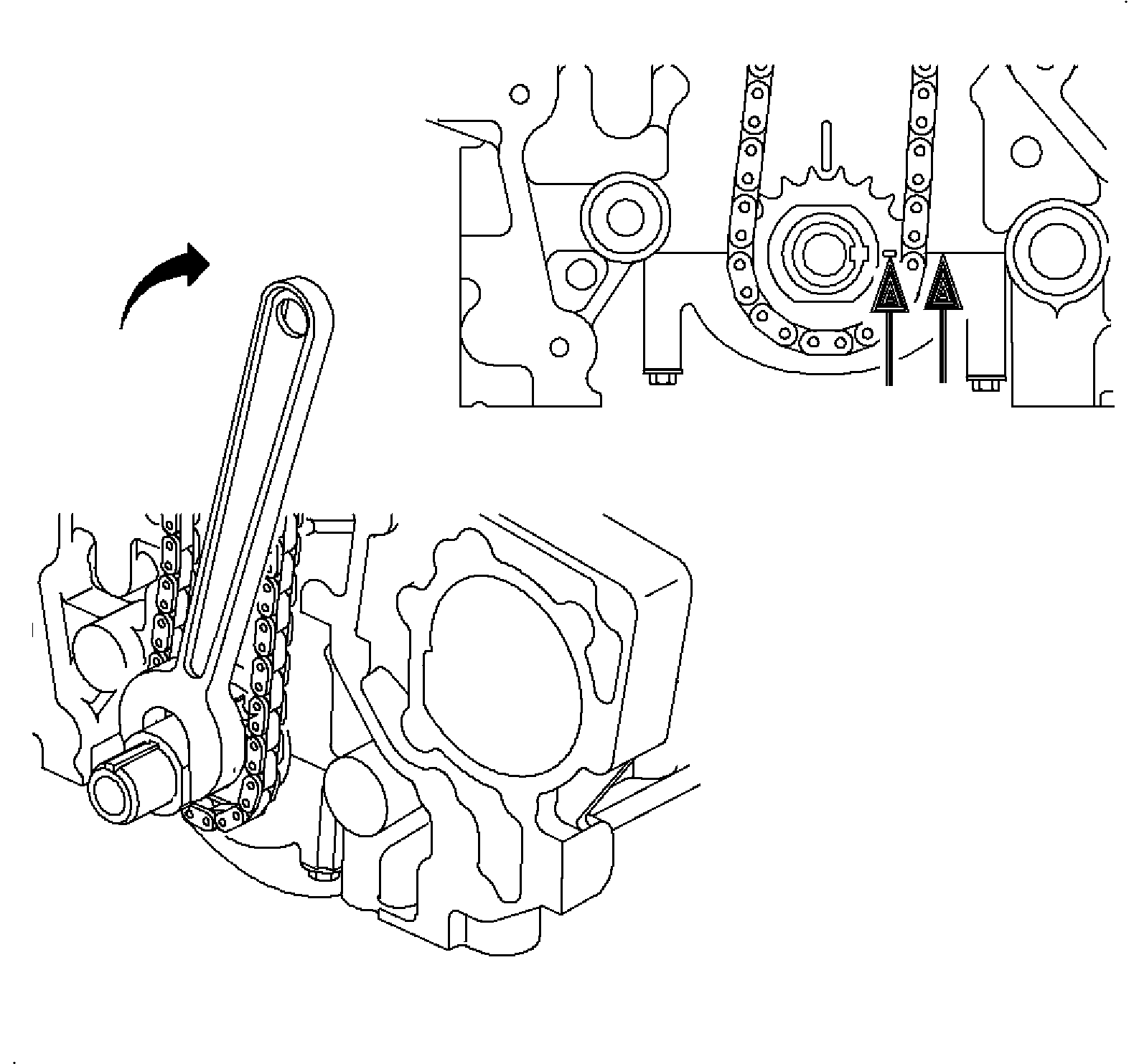
| 12.4. | Hand-lap the valve and valve seat with an abrasive compound. |
| 12.5. | Clean the valve and valve seat after lapping using solvent. |
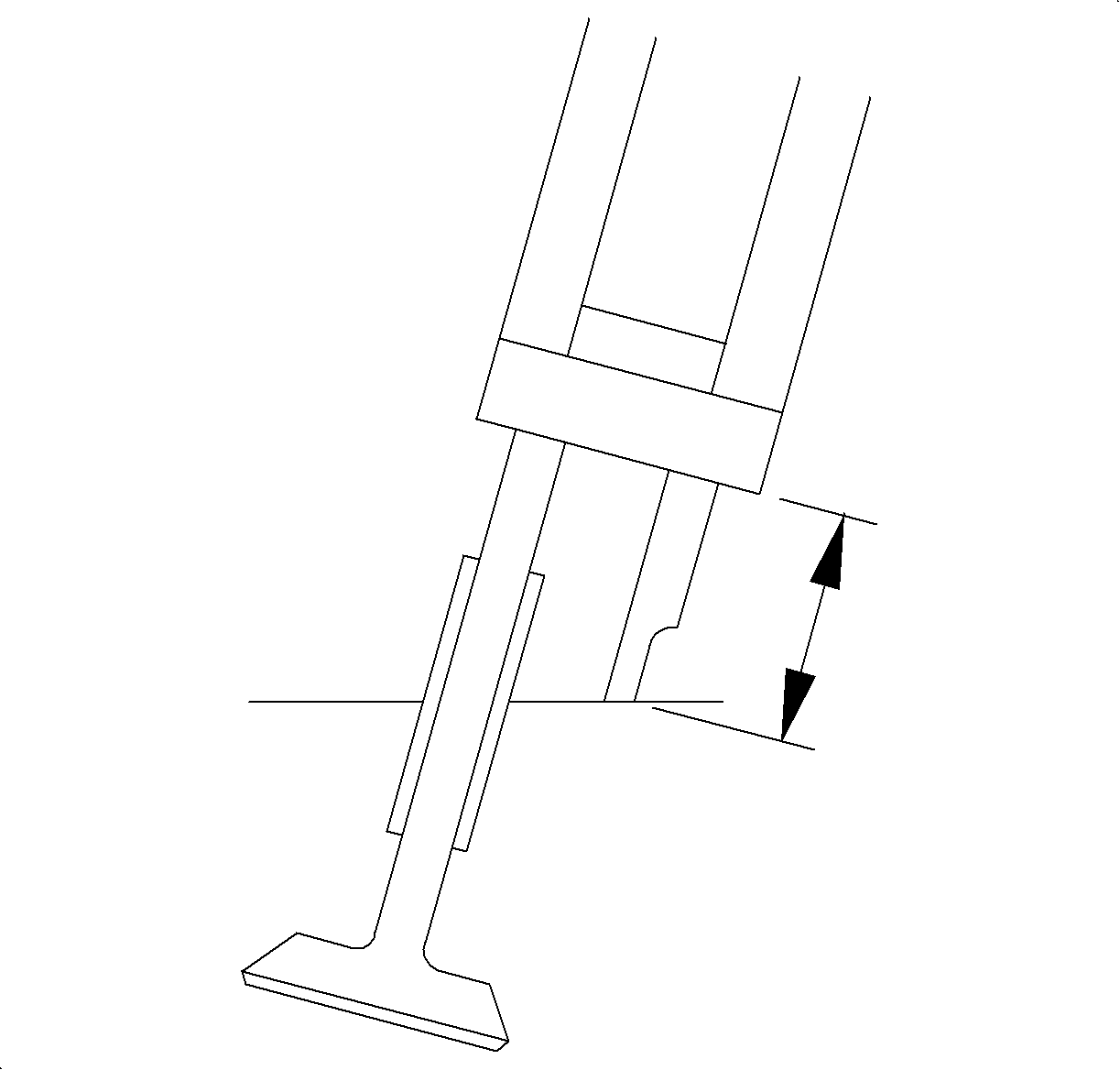
| 12.6. | Install the valve without the seal and measure the tip height with the calipers. |
Specifications
Maximum Height Dimensions
| • | Standard: 39.31-39.98 mm (1.548-1.567 in) |
| • | Service Limit: 39.31 mm (1.548 in) min. |
| • | Service Limit: 40.28 mm (1.586 in) max. |
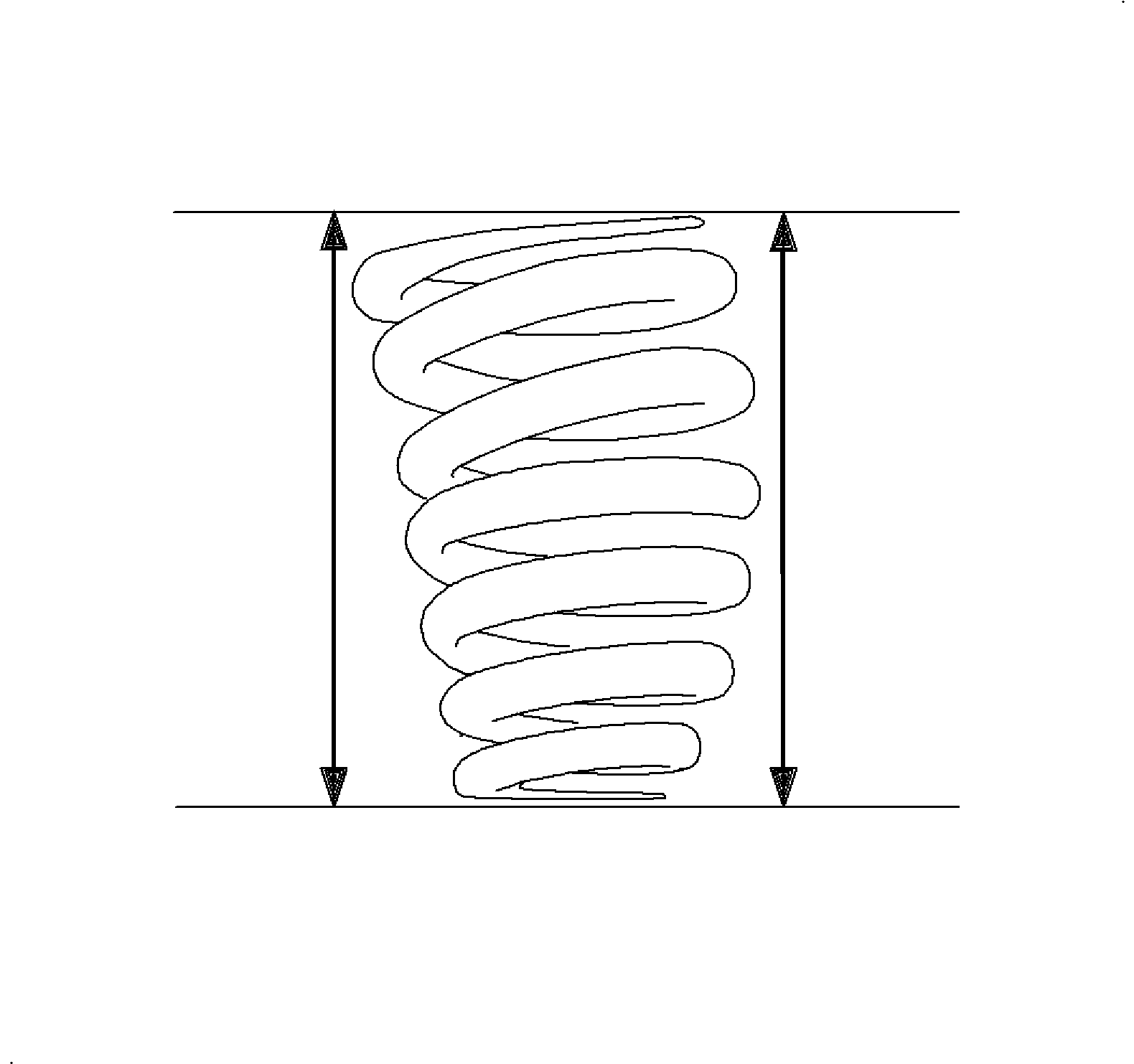
- Inspect the valve springs.
| 13.1. | Using a ruler, measure the height of the valve spring at 4 locations.
If the valve spring is bent, replace it. |
Specifications
Maximum Squareness
| • | Standard: 2 mm (0.08 in) max. |
| • | Service Limit: 2.5 mm (0.1 in) max. |
| 13.2. | Using calipers or the SA9179NE
, or equivalent, measure the free length of the valve spring. If the free
length is not within specification, replace the valve spring. |
Specifications
Standard Free Length (Reference Only): 40.1 mm
(1.58 in) min.
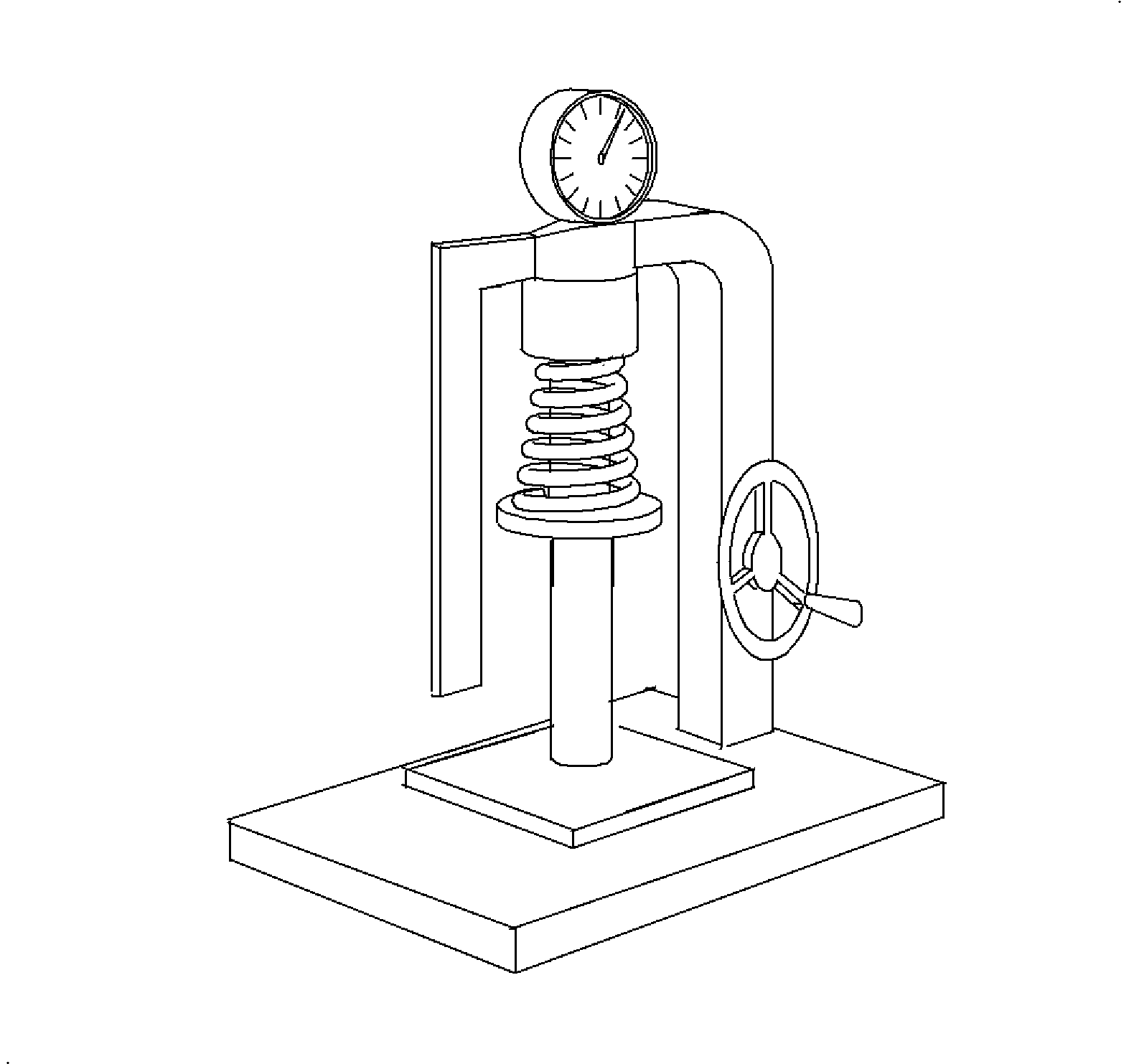
| 13.3. | Using a SA9183NE
or equivalent, fully collapse
the spring 3 times, then measure the tension of the valve spring at the specified
installed length. If the installed tension is not as specified, replace the valve
spring. |
Specifications
Tension at 21.5 mm (0.85 in)
| • | Standard: 440-486 N (99-109 lbs) |
| • | Service Limit: 420 N (94 lbs) min. |
Specifications
Tension at 31 mm (1.22 in)
| • | Standard: 186-214 N (42-48 lbs) |
| • | Service Limit: 180 N (40 lbs) min. |
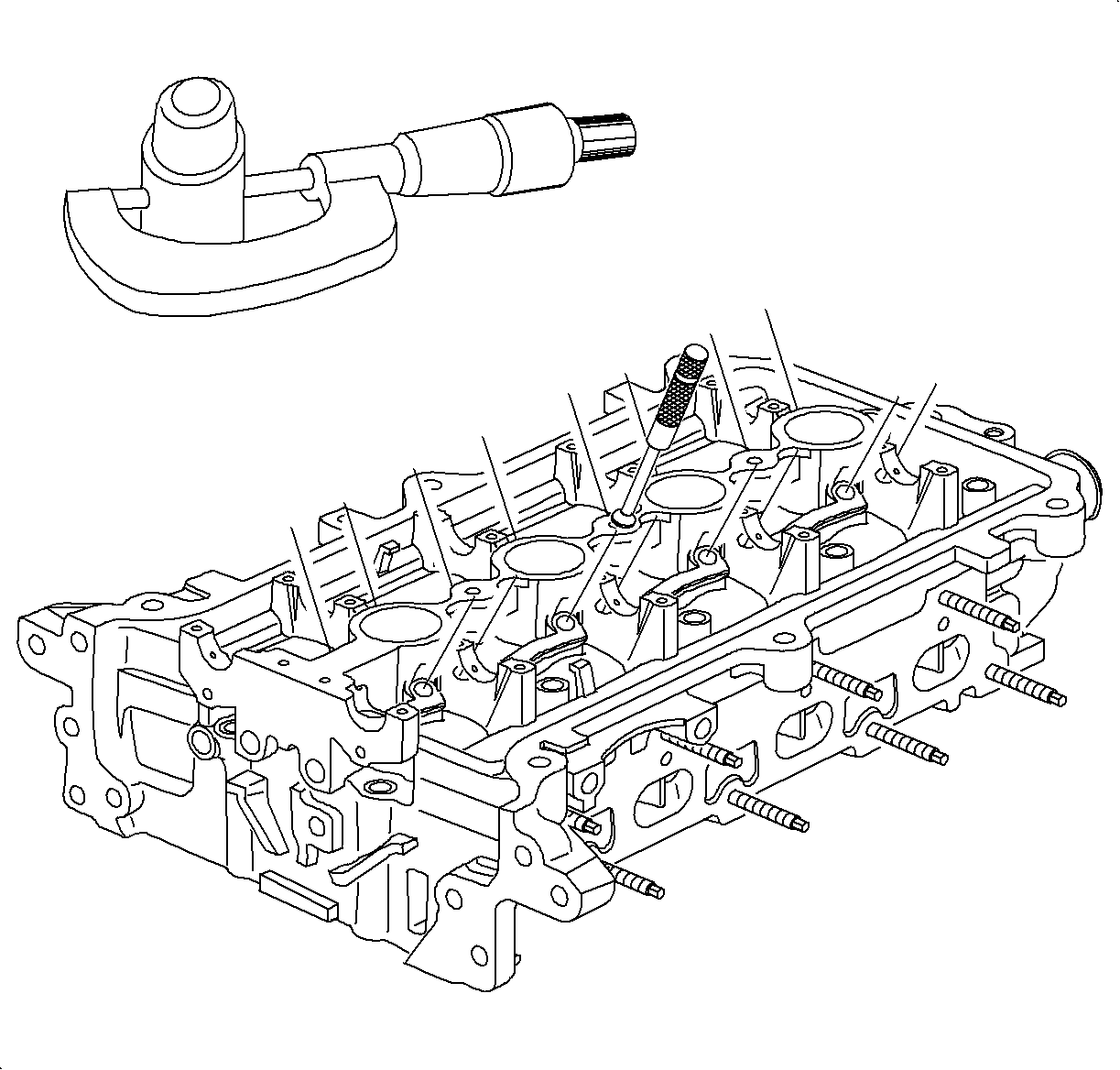
- Check the lash adjuster diameter and cylinder head bore for wear.
Specifications
Lifter Diameter
| • | Standard: 11.986-12 mm (0.4722-0.4728 in) |
| • | Service Limit: 11.98 mm (0.472 in) min. |
Specifications
Cylinder Head Bore Diameter
| • | Standard: 12.008-12.03 mm (0.4371-0.474 in) |
| • | Service Limit: 12.04 mm (0.4744 in) max. |
Specifications
Oil Clearance
| • | Standard: 0.008-0.044 mm (0.0003-0.0017 in) |
| • | Service Limit: 0.06 mm (0.0024 in) max. |
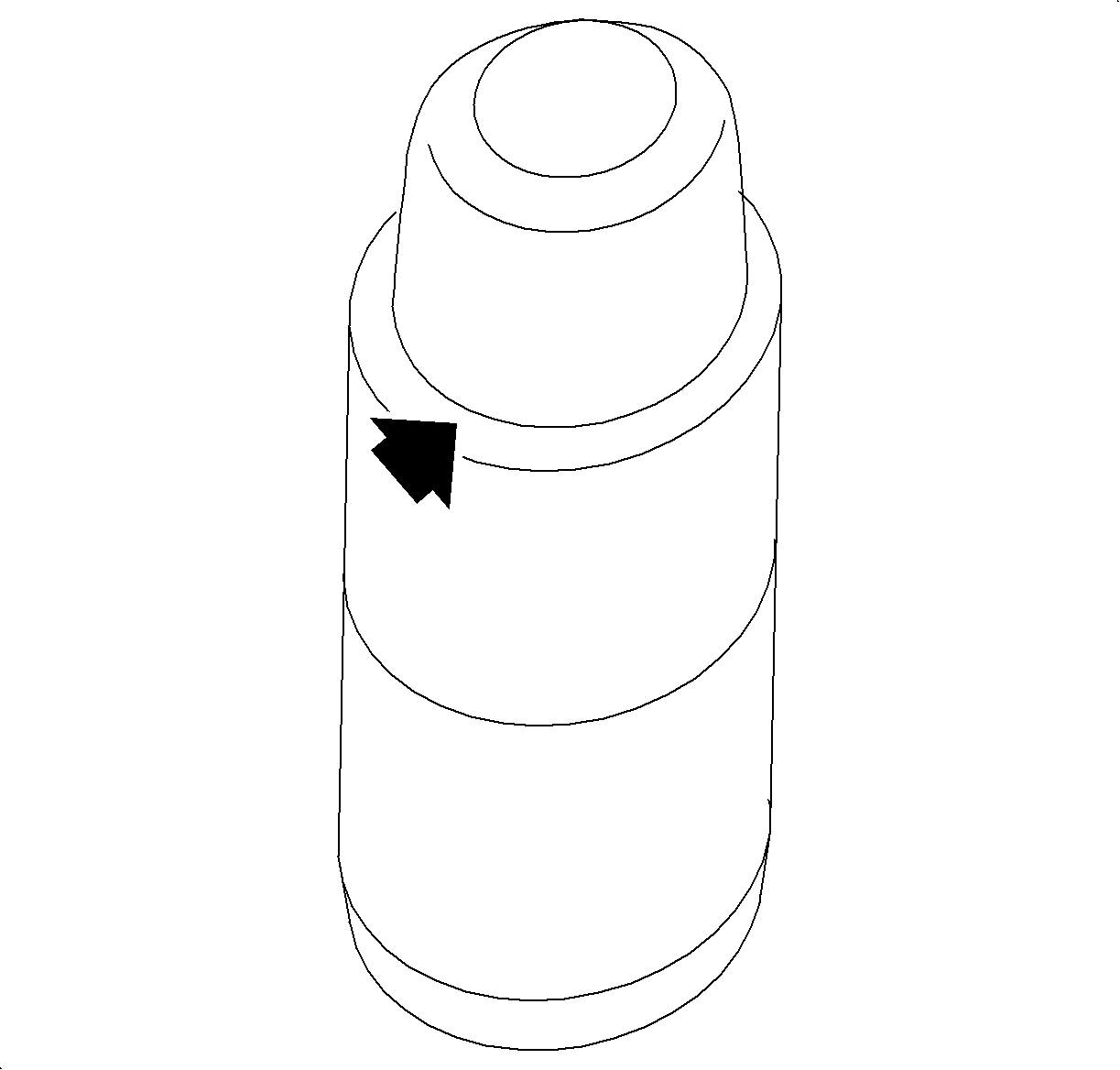
Important: Lifters must be installed in the same bores.
Lifters are very difficult to repair and must be replaced as an assembly.
- Inspect and clean the lifters, externally.
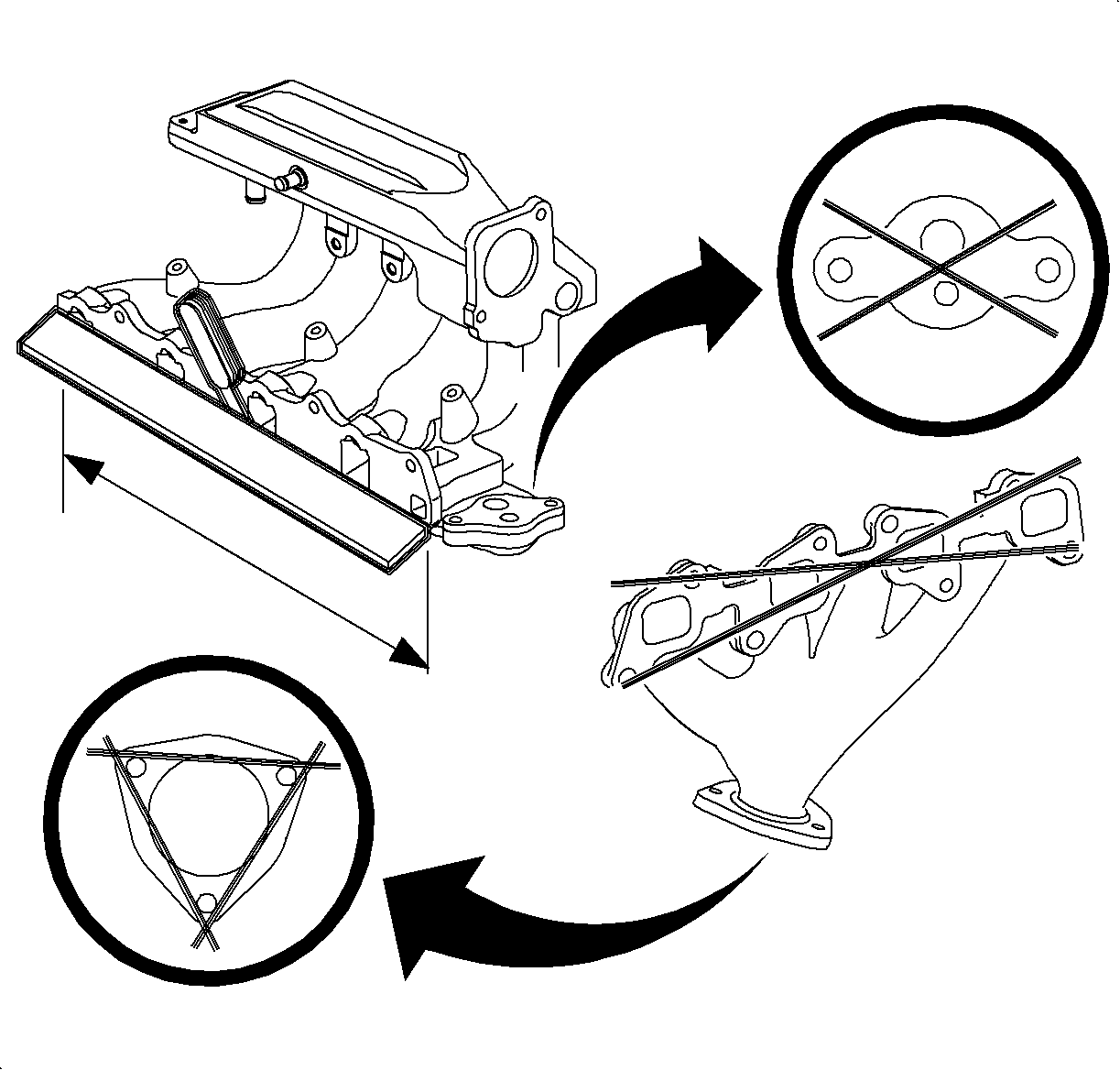
- Inspect the intake and exhaust manifolds. Using a precision straight edge and
feeler gage, measure the surfaces contacting the cylinder head, intake manifold,
and exhaust manifold for warpage. If warpage is greater than the maximum, replace
the manifold.
Specifications
Intake Manifold-to-Cylinder Head Warpage
| • | Standard: 0.13 mm (0.0051 in) max. |
| • | Service Limit: 0.2 mm (0.008 in) max. |
Specifications
Exhaust Manifold-to-Cylinder Head Warpage
| • | Standard: 0.25 mm (0.01 in) max. |
| • | Service Limit: 0.35 mm (0.014 in) max. |
Specifications
Intake Manifold-to-Throttle Body Warpage
| • | Standard: 0.1 mm (0.004 in) max. |
| • | Service Limit: 0.15 mm (0.006 in) max. |
Specifications
Exhaust Manifold-to-Front Exhaust Pipe Flange
| • | Standard: 0.4 mm (0.016 in) max. |
| • | Service Limit: 0.4 mm (0.016 in) max. |
Specifications
Intake Manifold EGR Flange
| • | Standard: 0.1 mm (0.004 in) max. |
| • | Service Limit: 0.15 mm (0.006 in) max. |

































